1. Itchy skin which can drive you crazy
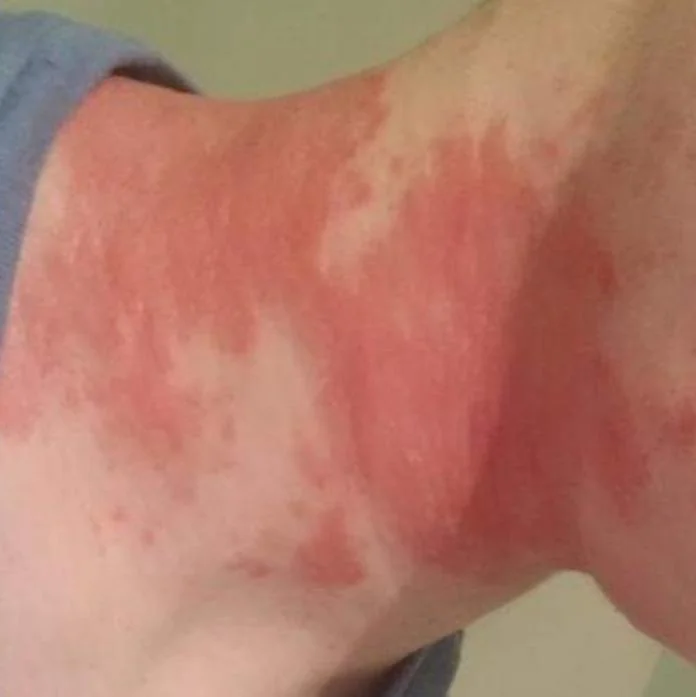
Image source: Reddit
Fungal infections provoke intense itching due to the inflammatory response triggered by the presence of fungi on the skin. This itching sensation can be persistent and disruptive, often worsening in warm or humid conditions. Scratching can lead to further irritation and potentially introduce bacteria.
2. The area is red and causes irritation
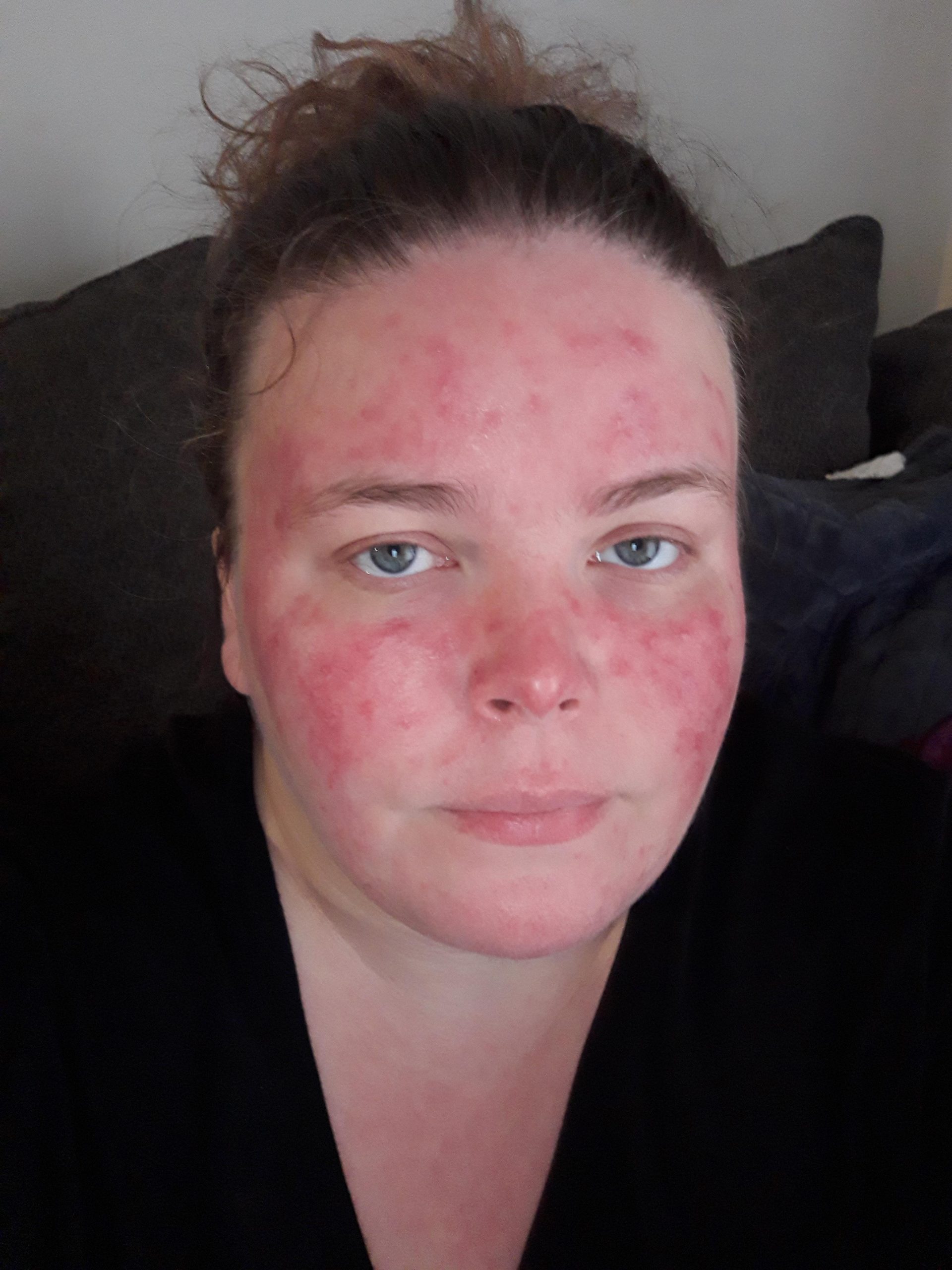
Image source: Reddit
The presence of fungi on the skin stimulates the body's immune response, resulting in redness, inflammation, and irritation. The affected area may feel tender to the touch and may exhibit increased sensitivity. In severe cases, the skin may become swollen and warm as the immune system attempts to combat the infection.
3. There's a raised rash on the skin
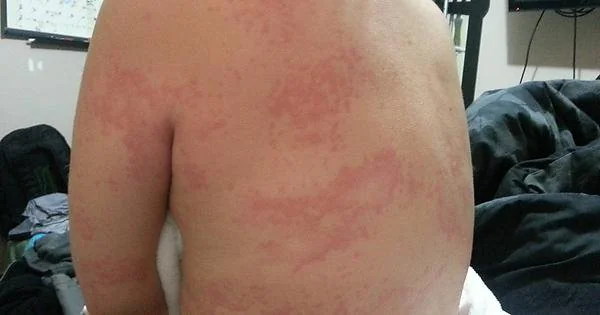 I
I
mage source: Reddit
Fungal rashes typically manifest as red, raised patches on the skin. These patches may have well-defined borders and can vary in size and shape. The rash may be accompanied by scaling, flaking, or crusting of the skin, giving it a rough or uneven texture. In some instances, the rash may spread to adjacent areas of the body if left untreated.
4. The skin is peeling
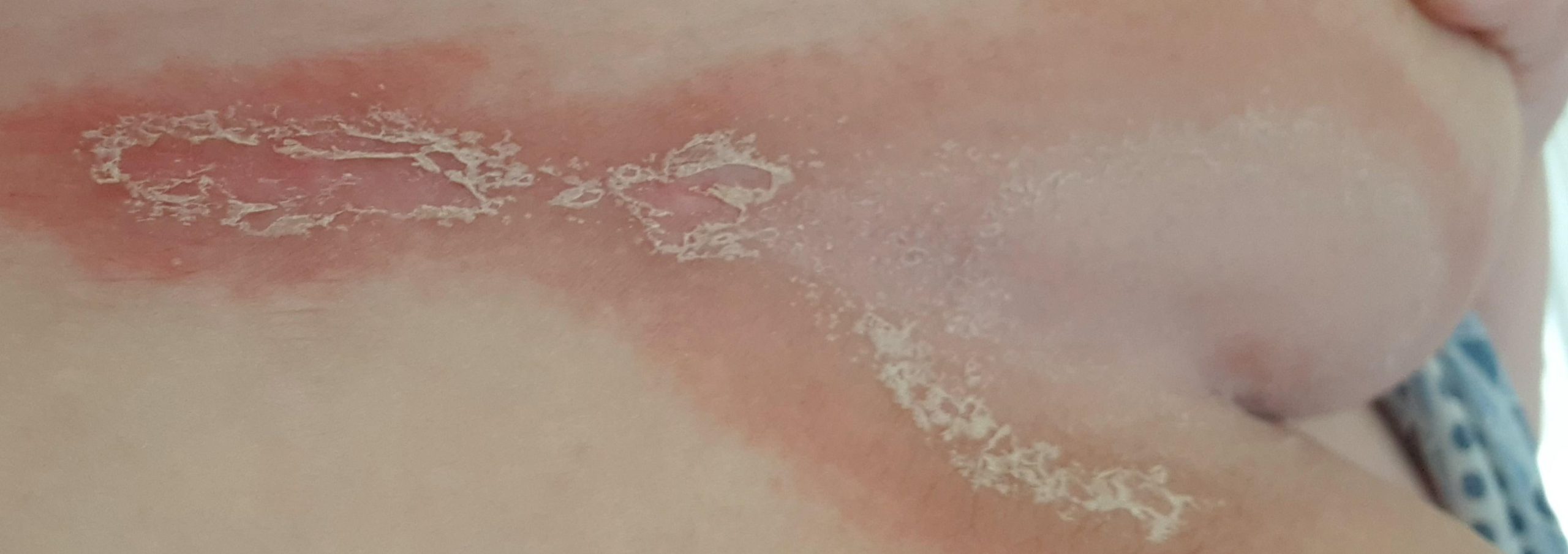
Image source: Reddit
As a fungal infection progresses, the affected skin may begin to peel or shed. This peeling often occurs in areas where the infection is concentrated and can result in the removal of outer layers of skin. Peeling skin can exacerbate itching and discomfort and may leave the skin vulnerable to further irritation and infection.
5. You have fluid filled blisters
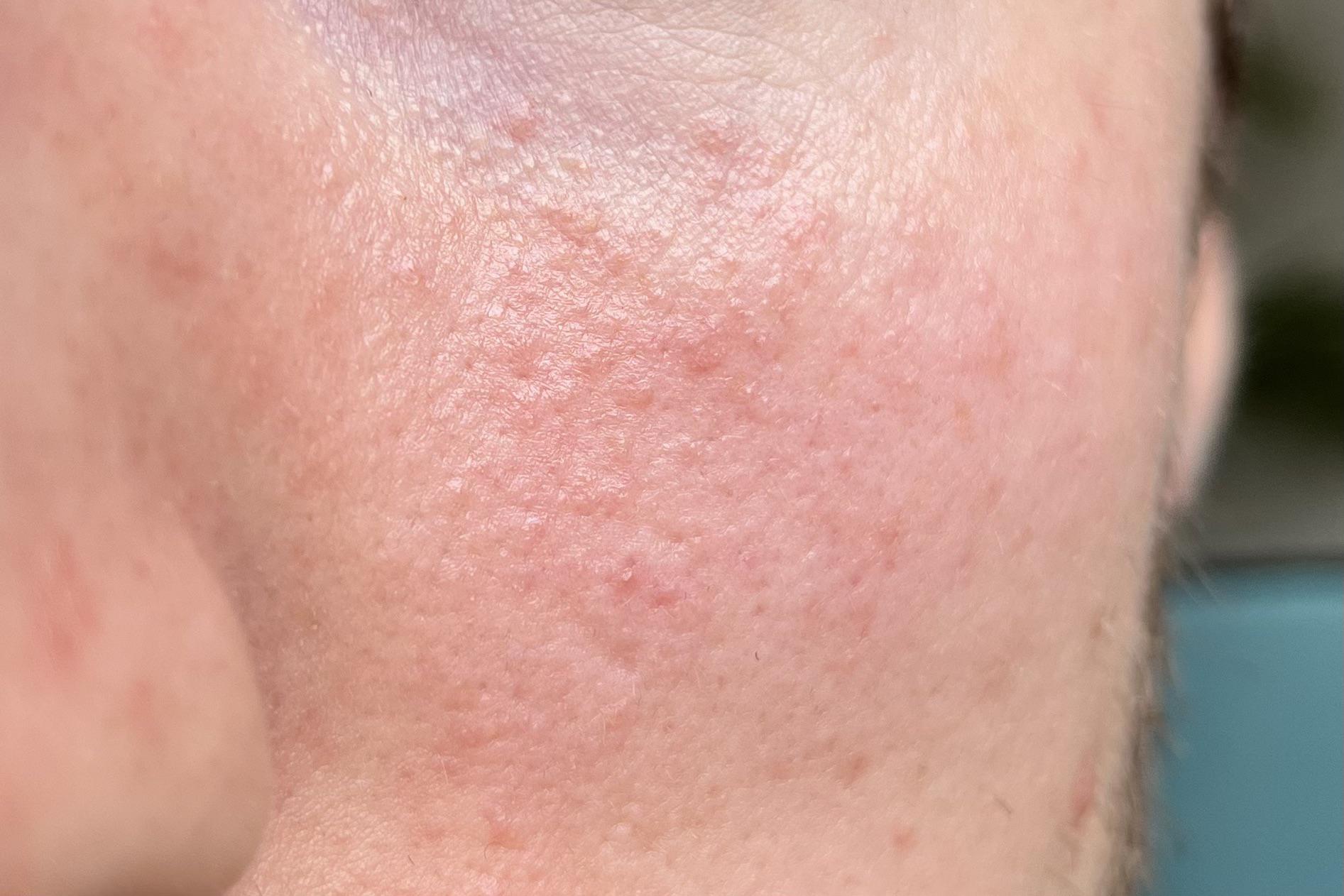
Image source: Reddit
Fungal infections in warm, moist areas of the body can lead to the formation of fluid-filled blisters. These blisters may vary in size and can be painful or tender to the touch. As the infection progresses, the blisters may rupture, leading to the development of open sores or lesions that increase the risk of secondary bacterial infections.
6. The skin may be cracked
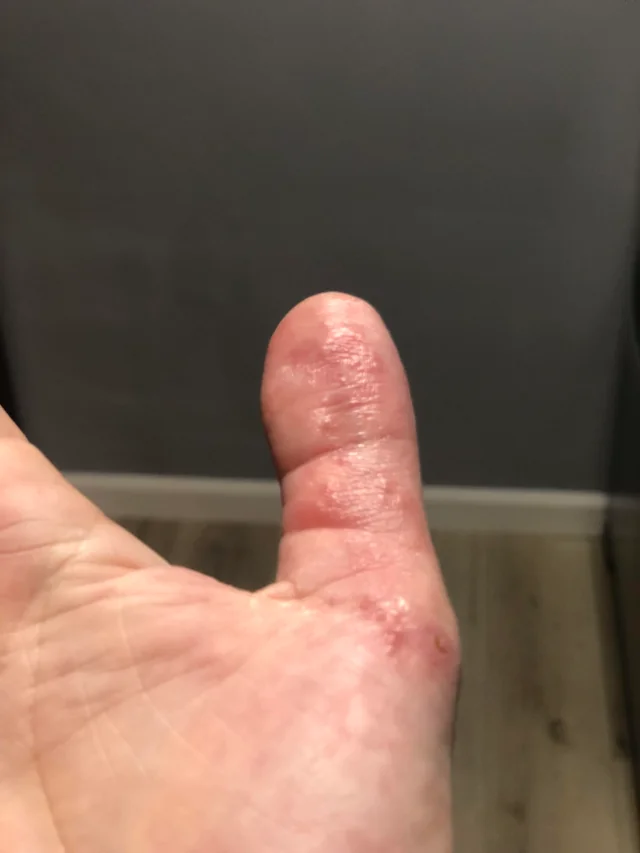
Image source: Reddit
Fungal infections, particularly those affecting the feet and hands, can cause the skin to crack or fissure. Cracks in the skin can be painful, especially when walking or using the hands, and may bleed or become infected. Cracked skin provides an entry point for fungi and bacteria, perpetuating the cycle of infection.
7. You have pain or discomfort
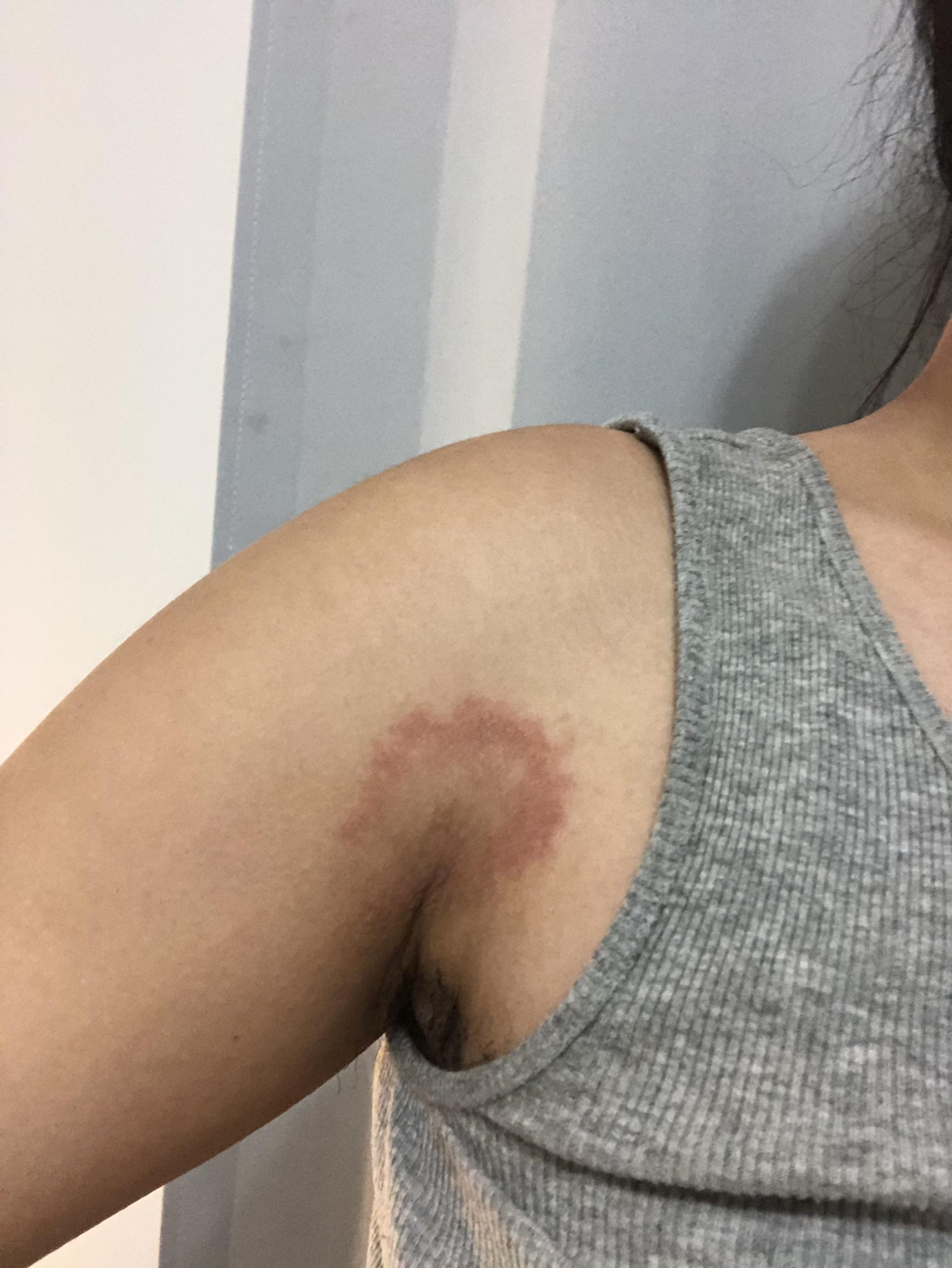
Image source: Reddit
Fungal infections can cause varying degrees of pain or discomfort, depending on the severity and location of the infection. Discomfort may be exacerbated by movement, friction, or pressure on the affected area. Painful symptoms may interfere with daily activities and quality of life, prompting individuals to seek medical attention for relief.
8. A strange odor
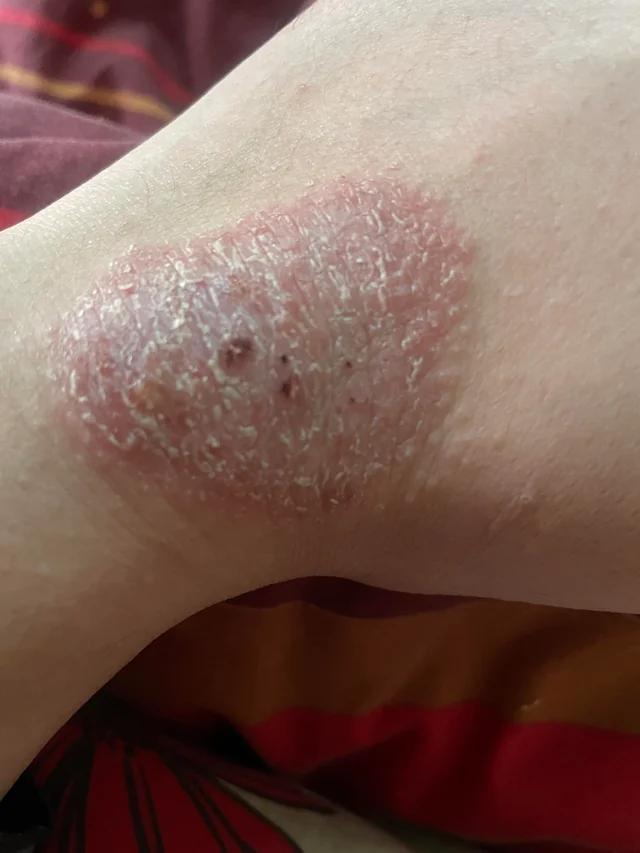
Image source: Reddit
Certain fungal infections, particularly those occurring in warm, moist areas of the body, can produce an unpleasant odor. The odor is often caused by the metabolic by-products of fungi and bacteria present on the skin. Despite regular hygiene practices, the odor may persist and can be distressing for individuals experiencing fungal infections.
9. Discoloration of nails
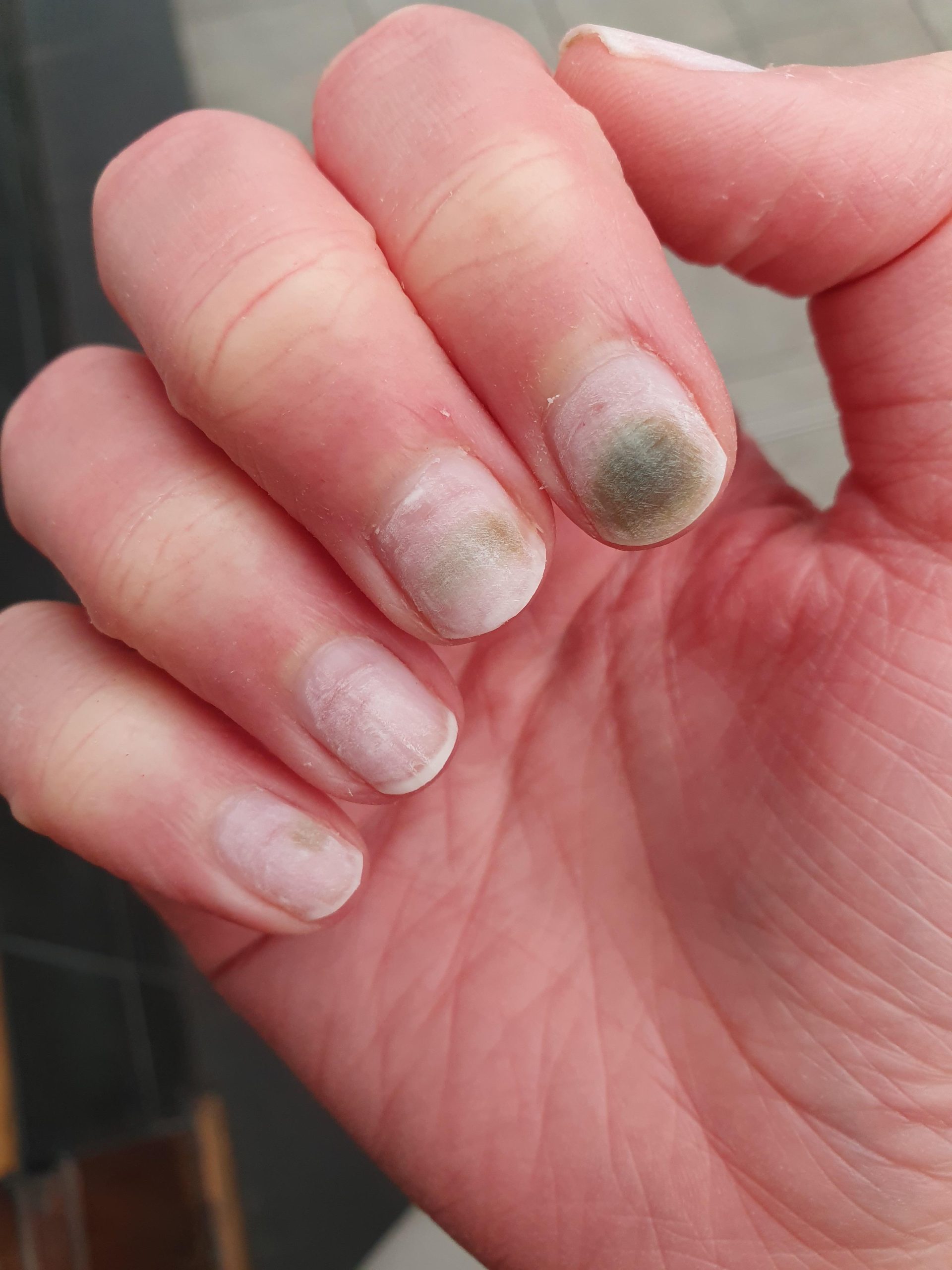
Image source: Reddit
Fungal nail infections alter the appearance and texture of the nails over time. Nails affected by fungal infections may change color, becoming yellow, brown, or white. The nails may also thicken, making them difficult to trim, and may develop a brittle or crumbly texture.
10. White spots on your nails
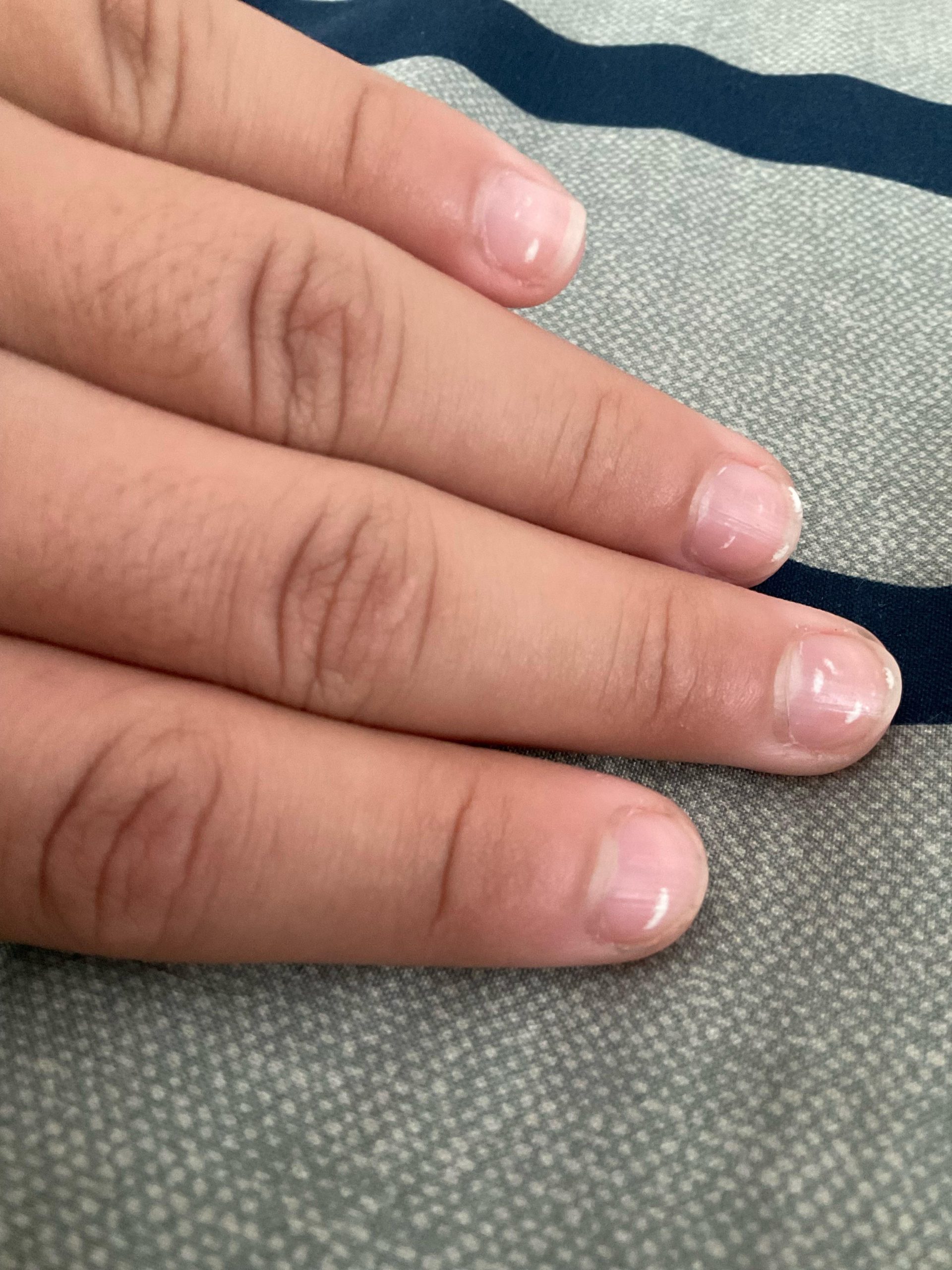
Image source: Reddit
The appearance of white spots or patches on the nails is often an early sign of fungal nail infection. These spots may start small and gradually spread to affect larger areas of the nail. As the infection progresses, the nails may become increasingly discolored, thickened, and distorted, making them more susceptible to damage and detachment.
11. Yellowing of nails
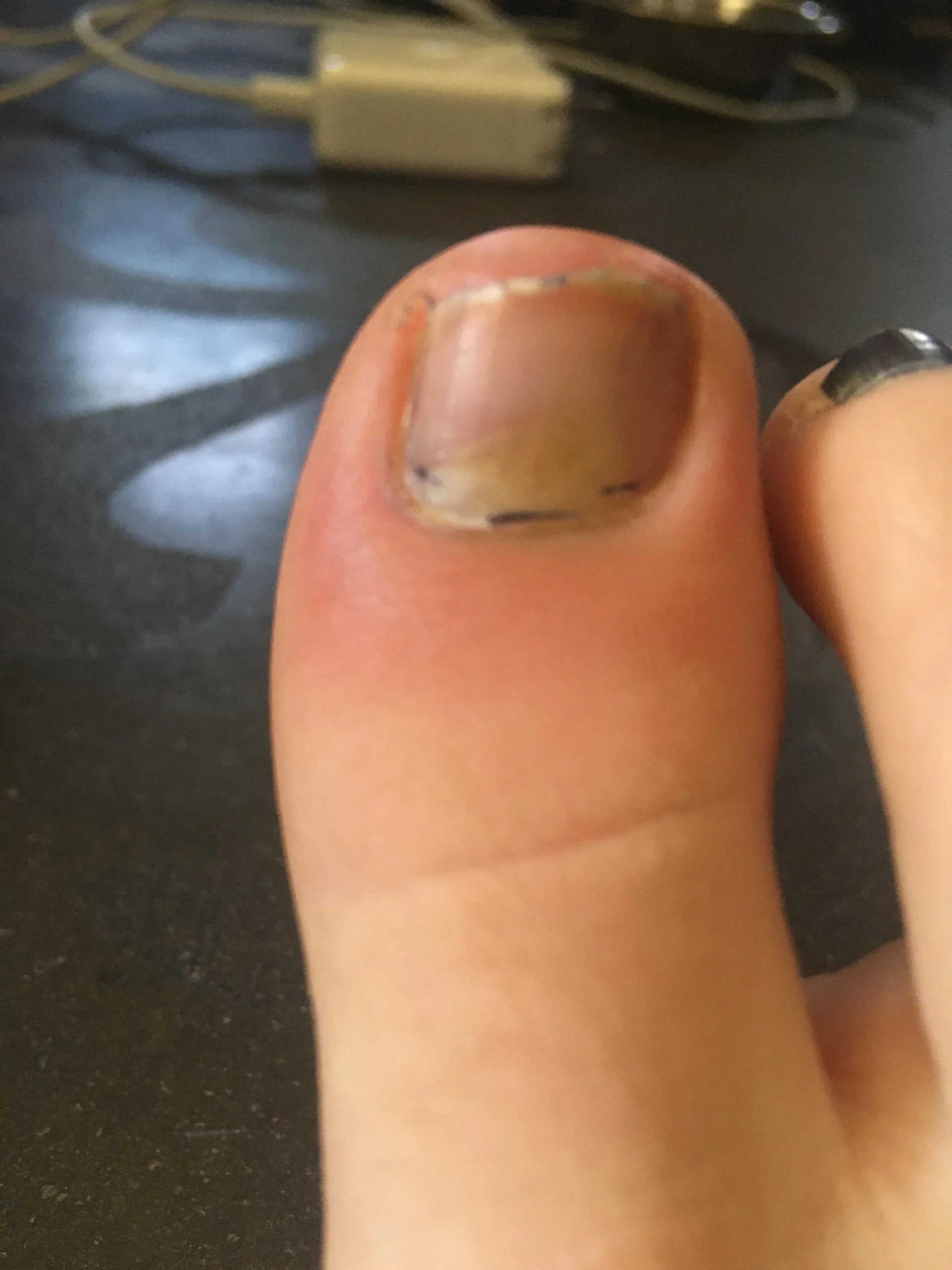
Image source: Reddit
Fungal infections of the nails often lead to discoloration, with nails turning yellow, brownish, or even greenish in color. This discoloration typically starts at the tips or edges of the nails and may gradually spread throughout the entire nail bed.
12. Thickening of nails

Image source: Reddit
As fungal infections progress, affected nails often become thicker than usual. The thickening may occur gradually over time and can make it challenging to trim or maintain proper nail hygiene. Thickened nails may also feel heavier and more cumbersome than healthy nails.
13. Nails turn brittle
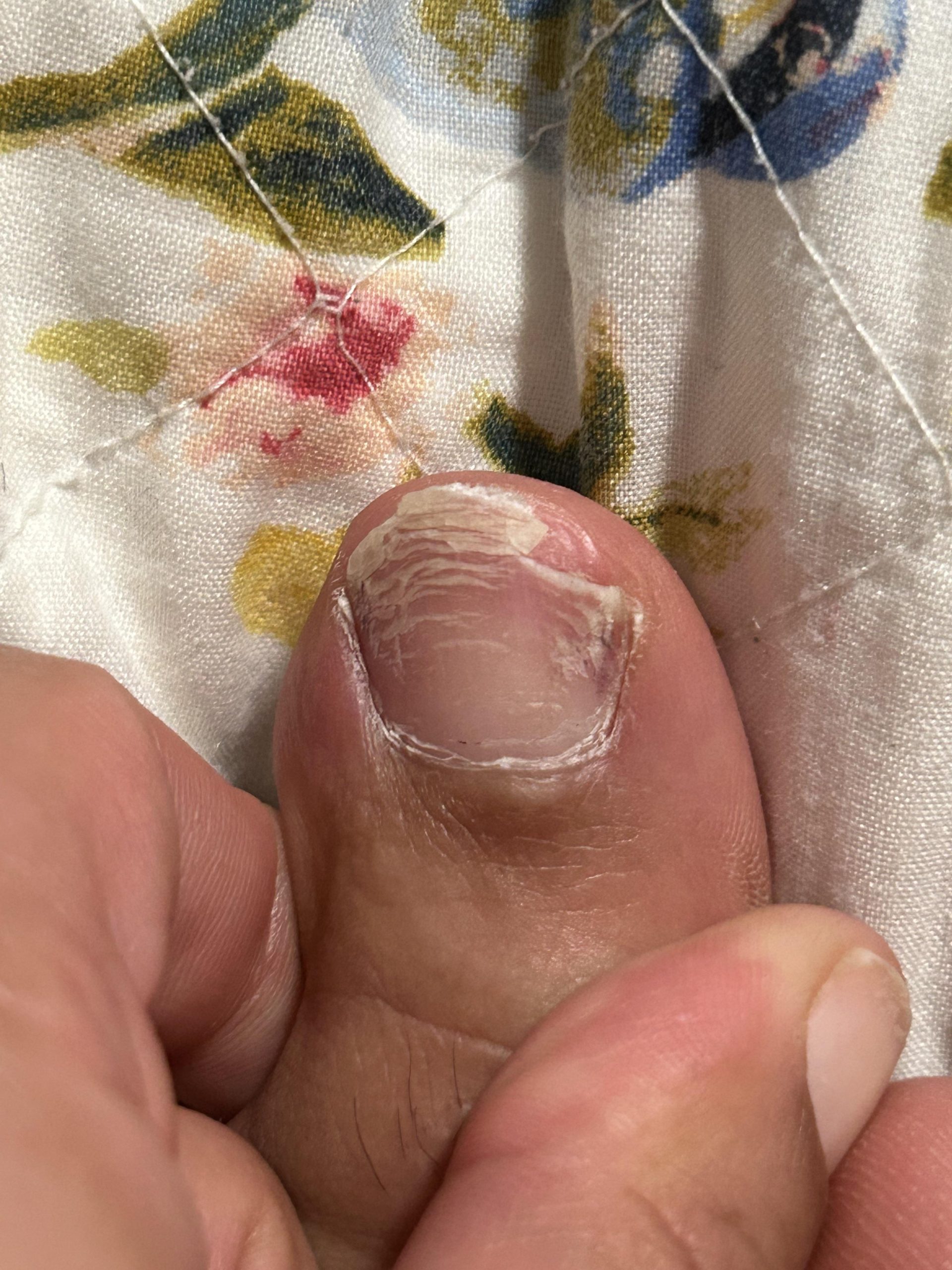
Image source: Reddit
Fungal infections can cause nails to become brittle and prone to breaking or splitting. The nails may develop irregularities, such as ridges or cracks, which compromise their structural integrity. Brittle nails are more susceptible to damage and may further exacerbate the spread of fungal infection.
14. You may have hair loss

Image source: Reddit
Fungal infections of the scalp, such as tinea capitis, can lead to hair loss or thinning in affected areas. The fungal infection interferes with the hair follicles' normal function, resulting in weakened hair shafts that are more prone to breakage and shedding. Hair loss may occur in patches or diffuse throughout the scalp.
15. Scalp is itchy

Image source: Reddit
Persistent itching of the scalp is a common symptom of fungal scalp infections. The itching may be accompanied by flakiness, scaling, or dandruff-like symptoms. Scratching the scalp can exacerbate inflammation and may lead to secondary bacterial infections or further hair loss.
16. It's painful to swallow
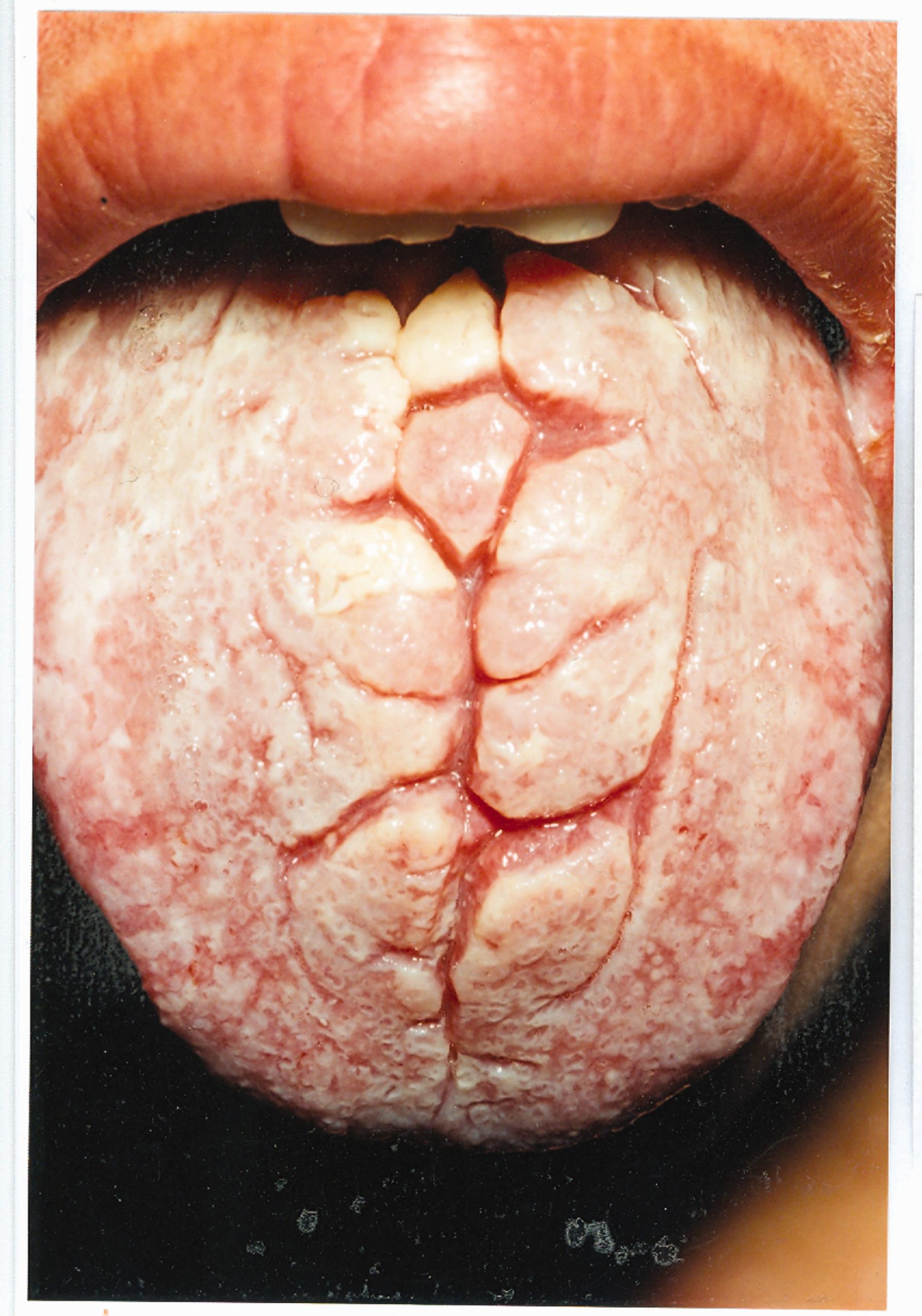
Image source: Insider
Fungal infections in the mouth or throat, such as oral thrush or oesophageal candidiasis, can cause pain or discomfort while swallowing. The affected areas may become inflamed and tender, making it painful to eat or drink. Severe cases may also result in difficulty swallowing or a sensation of food getting stuck in the throat.
17. There's white patches in the mouth
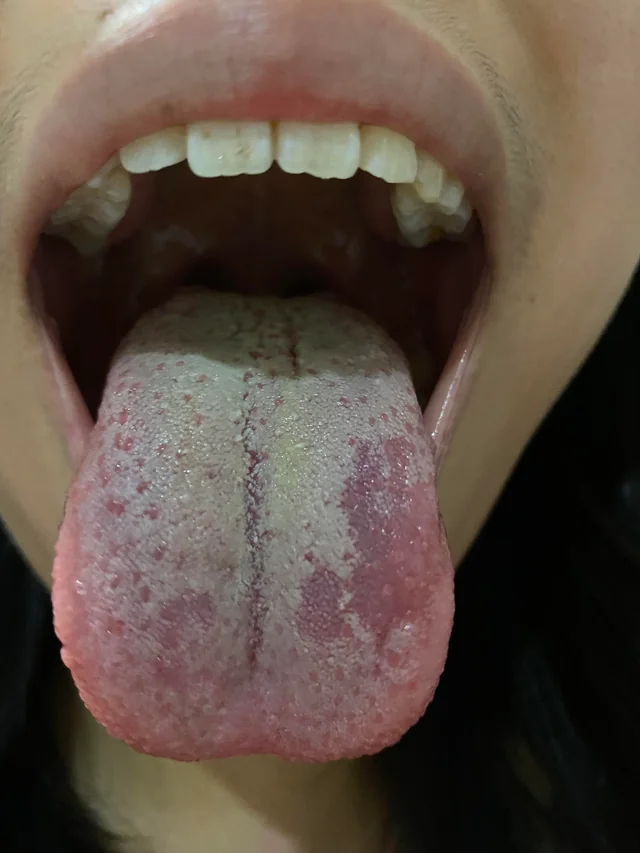
Image source: Reddit
The presence of white patches or lesions in the mouth or on the tongue is a hallmark sign of oral thrush, a fungal infection caused by Candida yeast. These patches may appear creamy or curd-like in texture and can be painful or tender when touched. In some cases, the patches may bleed or become ulcerated.
18. Vaginal discharge
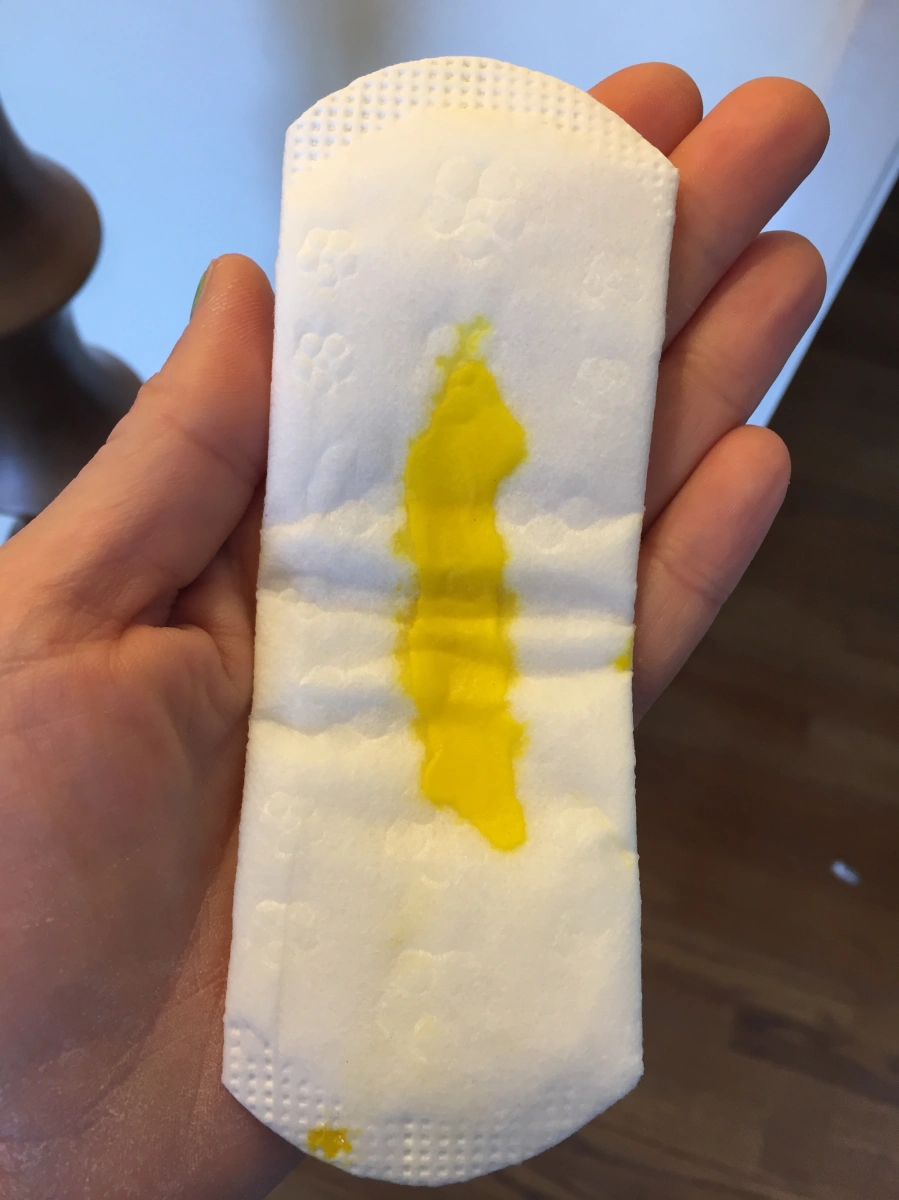
Image source: Insider
Women with vaginal fungal infections, such as vaginal yeast infections, may experience abnormal vaginal discharge. The discharge is typically thick, white, and clumpy in texture, resembling cottage cheese. It may also be accompanied by itching, burning, or irritation in the vaginal area.
19. Genital itching or discomfort
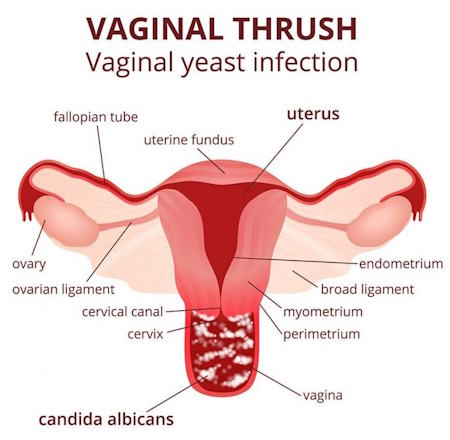
Image source: Doctor Zara
Fungal infections in the genital area, including yeast infections or jock itch, can cause intense itching, redness, and discomfort. The affected skin may become inflamed, swollen, or tender to the touch. Scratching can lead to further irritation and may increase the risk of secondary infections.
20. Foul odor in body folds
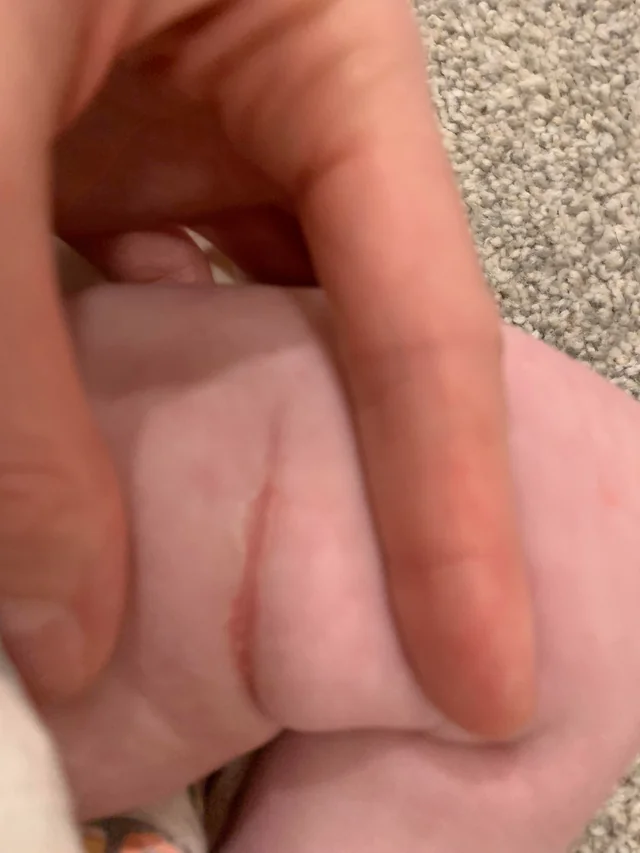
Image source: Reddit
Fungal overgrowth in warm, moist body folds, such as under the breasts, in the groin, or in armpits, can produce a foul odor. Even with thorough washing, the odor may still persist and can be extremely embarrassing or distressing for affected individuals.
21. Swelling or puffiness
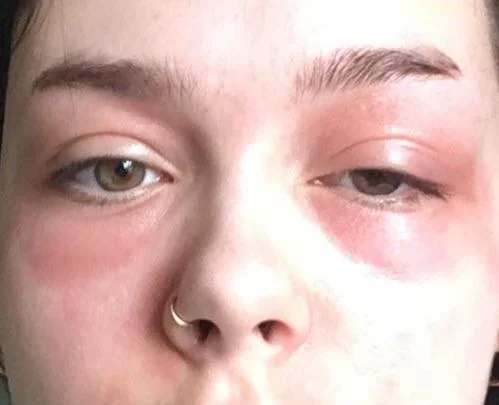
Image source: Reddit
Swelling occurs as a result of the body's immune response to the fungal infection. Inflammation triggers an influx of immune cells and fluids to the affected area, leading to swelling or puffiness. Swelling is more common in severe fungal infections or cases of acute inflammation, especially in areas where the infection is concentrated.
22. There's a burning sensation
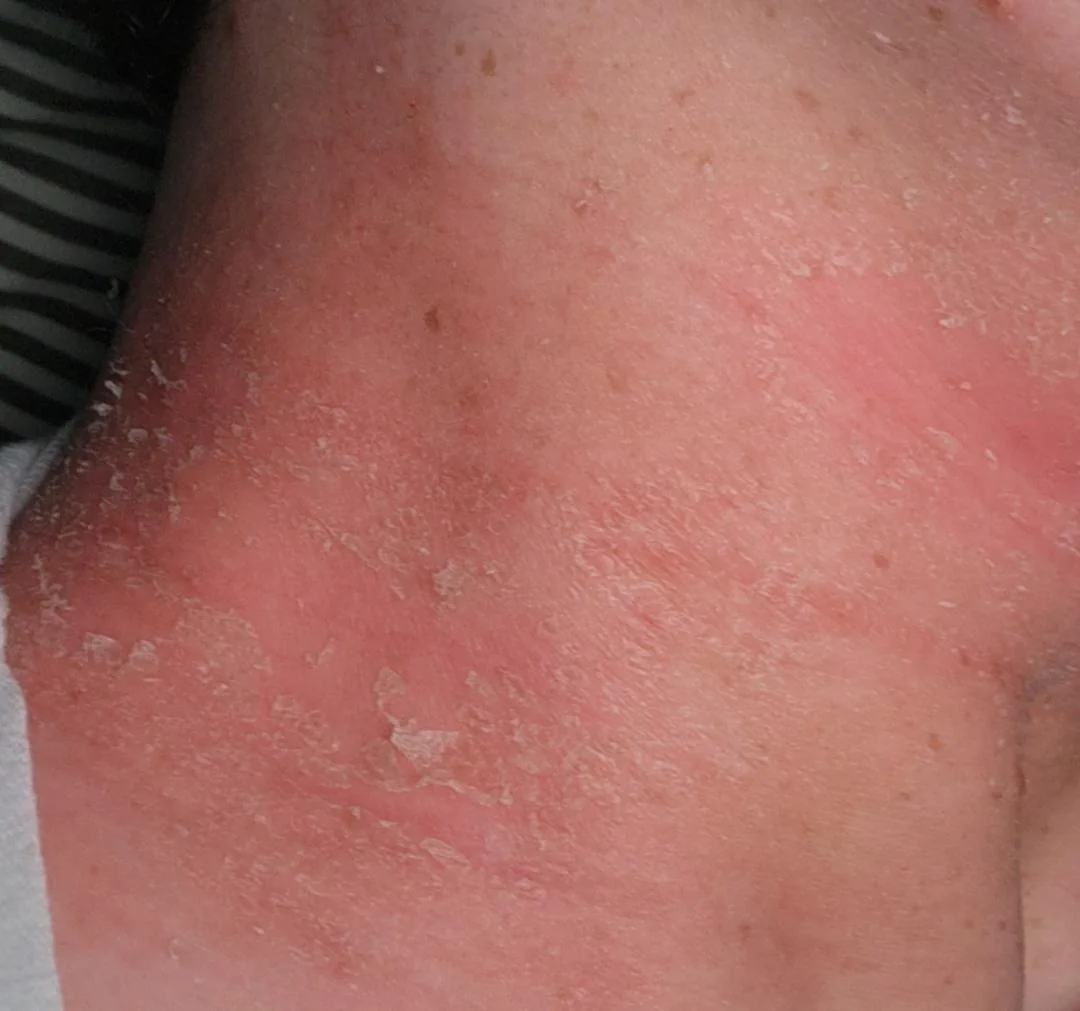
Image source: Reddit
A burning or tingling sensation is often reported in areas affected by fungal infections. This sensation may result from inflammation and irritation of the skin or mucous membranes caused by fungal overgrowth. The burning sensation can be particularly pronounced in warm or moist areas of the body where fungi thrive.
23. You may have difficulty breathing
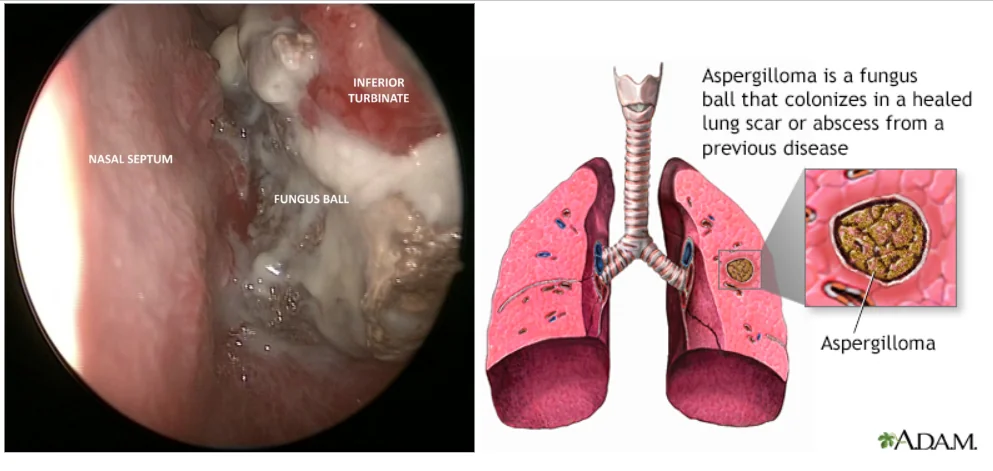
Image source: Reddit
Fungal infections affecting the respiratory system can lead to symptoms such as shortness of breath, wheezing, or chest tightness. These symptoms may occur in conditions like fungal pneumonia or allergic bronchopulmonary aspergillosis (ABPA). In severe cases, fungal infections can cause respiratory failure.
24. You could have a fever
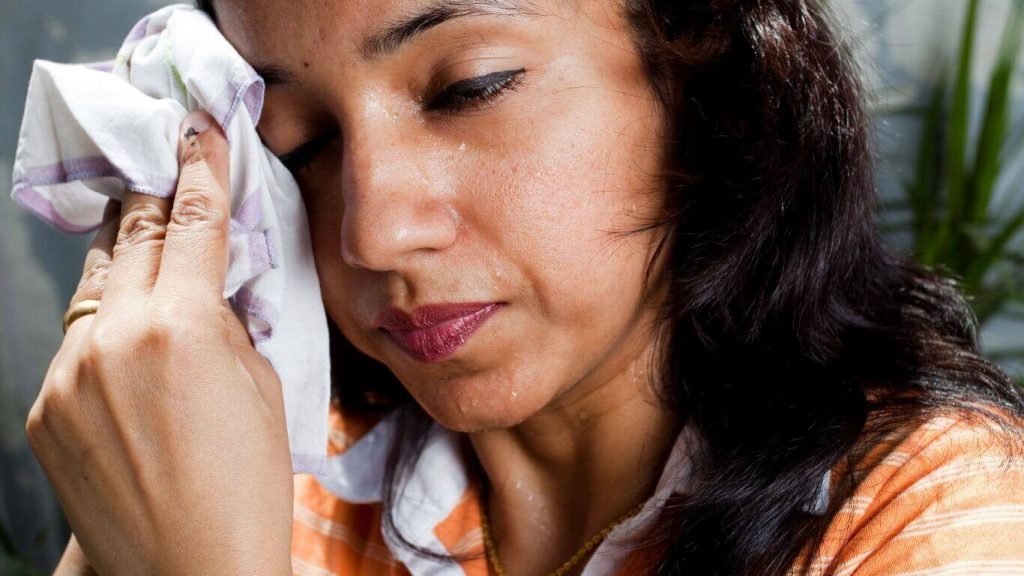
Image source: Insider
Systemic fungal infections can trigger the body's immune response, leading to fever. Fever is a common symptom of invasive fungal infections that have spread beyond the skin or nails to affect internal organs or tissues. Fever may be accompanied by chills, sweating, and generalized discomfort.
25. You're struggling with fatigue

Image source: The Sun
Chronic fungal infections or those affecting internal organs can cause fatigue or a general feeling of malaise. Fatigue may result from the body's efforts to combat the infection, as well as from the metabolic changes induced by fungal toxins or inflammatory mediators. Fatigue can significantly impact daily functioning and quality of life.
26. There could be digestive issues
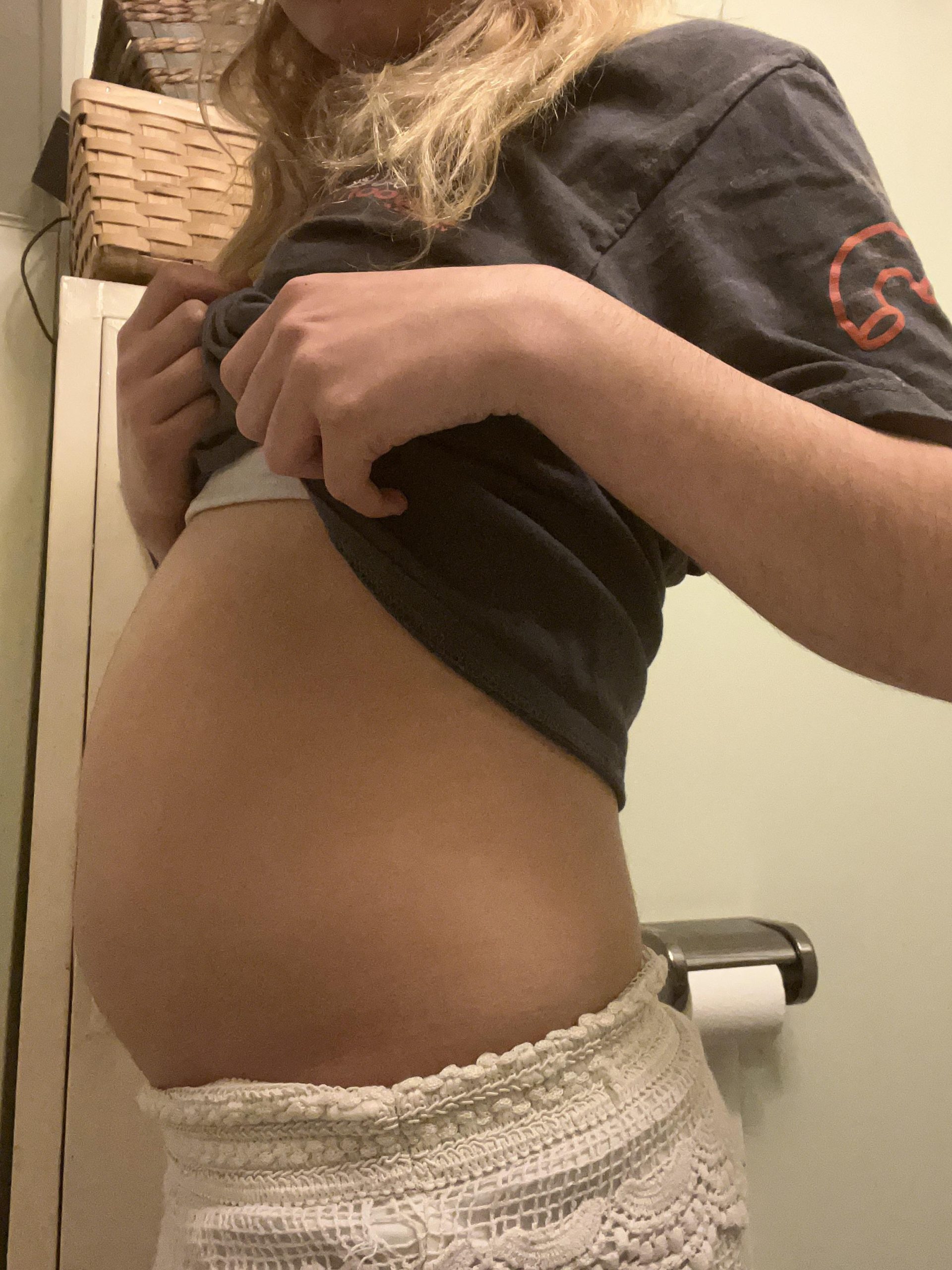
Image source: Reddit
Fungal infections in the digestive tract can disrupt normal gastrointestinal function, leading to symptoms such as abdominal pain, bloating, diarrhea, or constipation. These symptoms may arise due to inflammation of the gastrointestinal lining, alterations in gut microbiota, or direct damage caused by fungal overgrowth.
27. Difficulty concentrating

Image source: X.com
Persistent fungal infections, particularly those affecting the central nervous system, can impair cognitive function and concentration. Fungal infections may lead to neuroinflammation, neuronal damage, or metabolic disturbances that affect brain function. Difficulty concentrating, memory problems, and cognitive impairment may significantly impact daily activities.
28. You have joint pain

Image source: Reddit
Certain fungal infections, such as those caused by Candida species, can lead to joint pain or stiffness. Fungal arthritis occurs when fungi invade the joints, triggering an inflammatory response that results in pain, swelling, and reduced joint mobility. Joint pain may be exacerbated by movement and can significantly impair physical function.
29. Your muscles feel weak
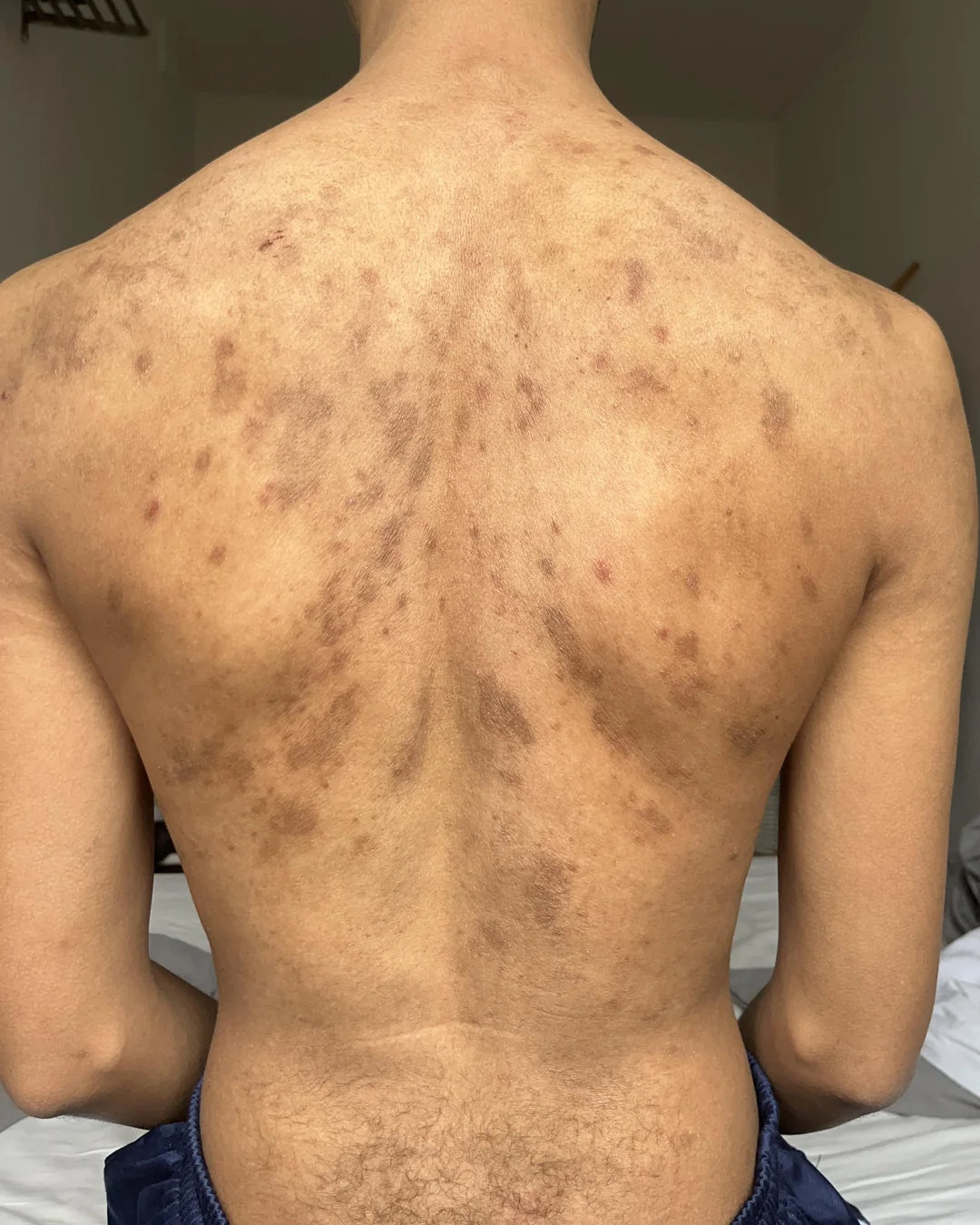
Image source: Reddit
Severe or systemic fungal infections can cause muscle weakness or fatigue. Muscle weakness may result from direct damage to muscle tissue, metabolic disturbances, or neurologic complications associated with fungal infections. Weakness and fatigue can interfere with mobility and daily activities, impacting overall quality of life.
30. There may be changes in your vision
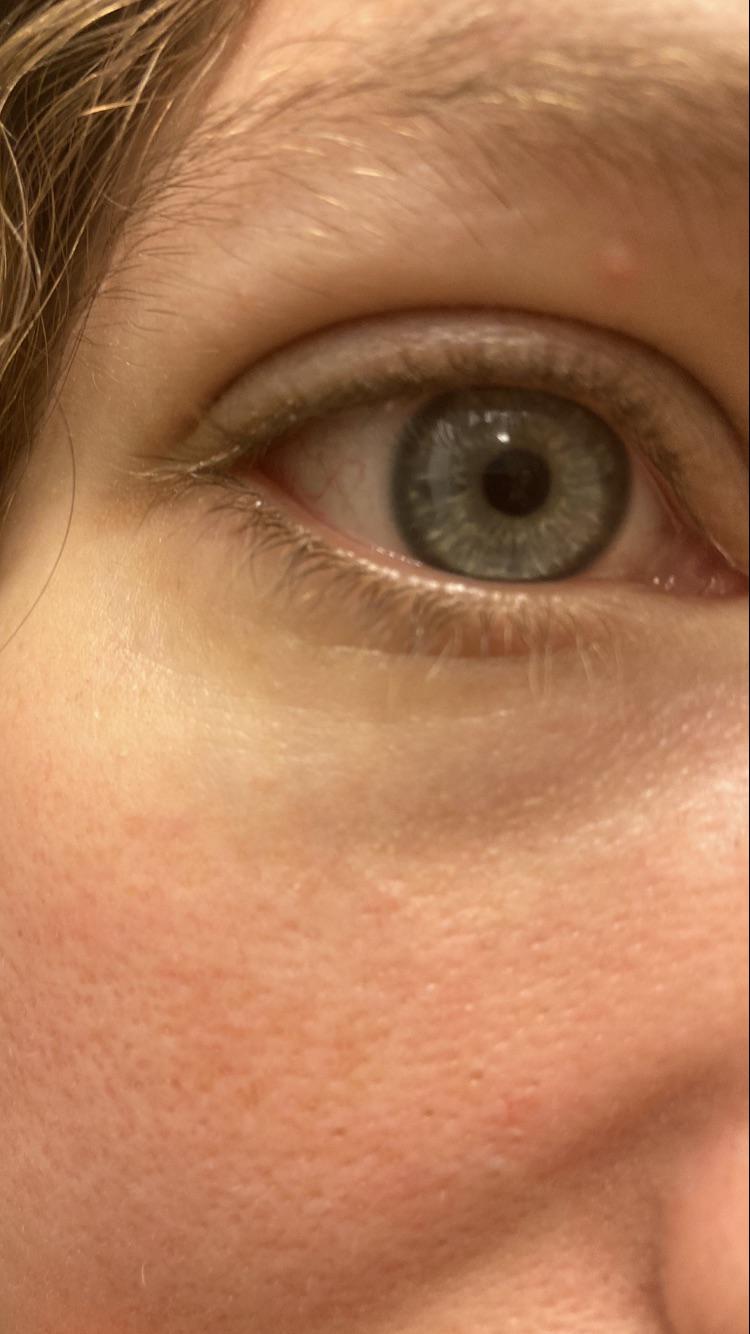
Image source: Reddit
In rare cases, fungal infections can affect the eyes, leading to symptoms such as blurred vision, eye pain, or sensitivity to light. Fungal eye infections, such as fungal keratitis or endophthalmitis, can cause inflammation of the cornea, iris, or other ocular structures, resulting in visual disturbances.
31. Ways to treat a fungal infection -
Antifungal creams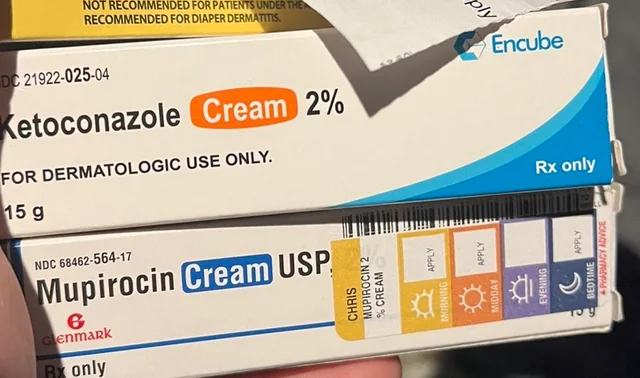
Image source: Reddit
Antifungal creams are topical medications applied directly to the affected area. They work by disrupting the cell walls of fungal organisms, ultimately killing them. These creams are commonly available over-the-counter and are effective for treating mild fungal infections of the skin, such as athlete's foot or jock itch.
32. Use prescription medications
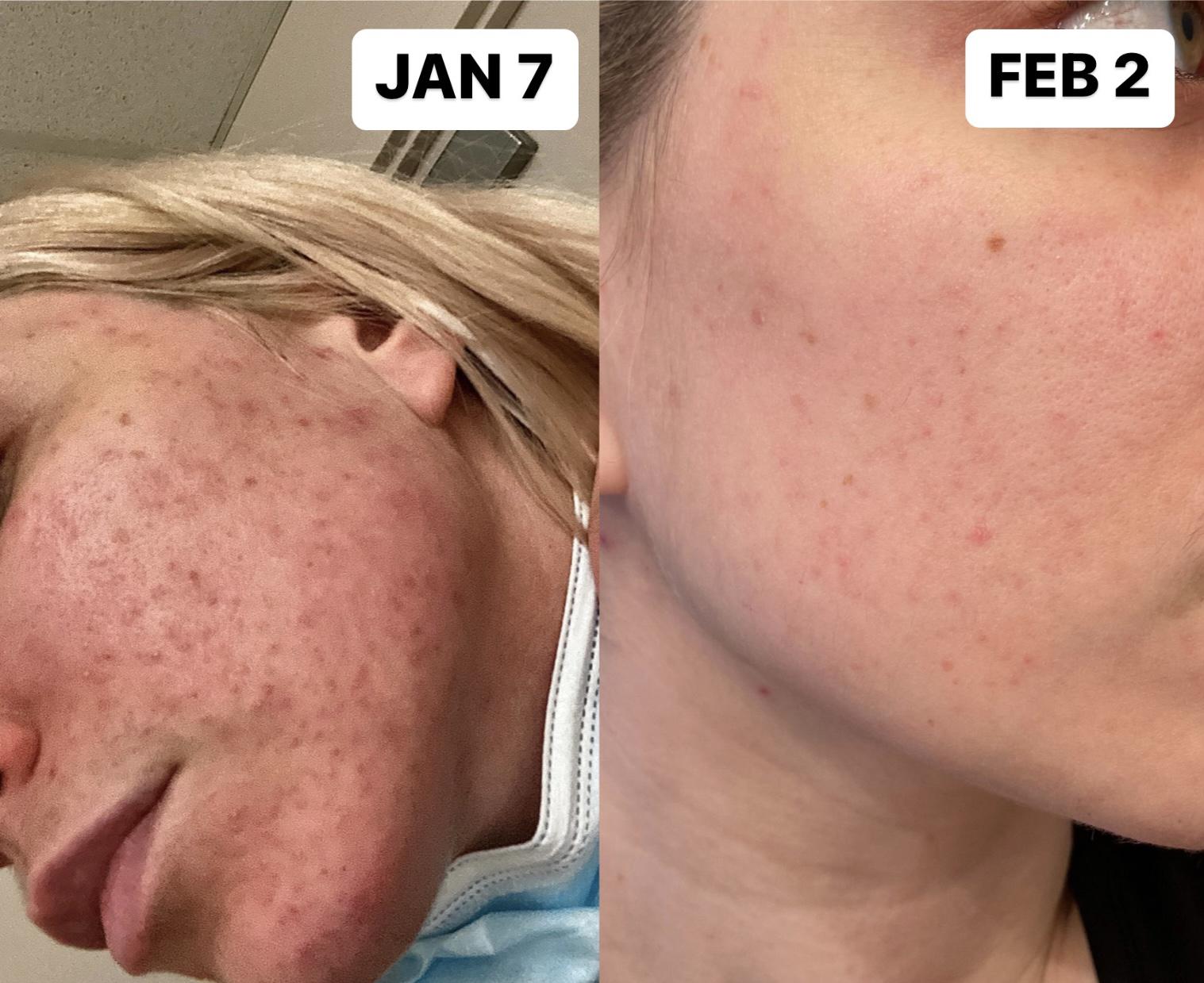
Image source: Reddit
In cases of more severe or persistent fungal infections, stronger prescription-strength antifungal medications may be necessary. These medications are available in various forms, including oral tablets, capsules, or liquids, and are often prescribed by healthcare professionals after a thorough evaluation.
33. Try topical solutions
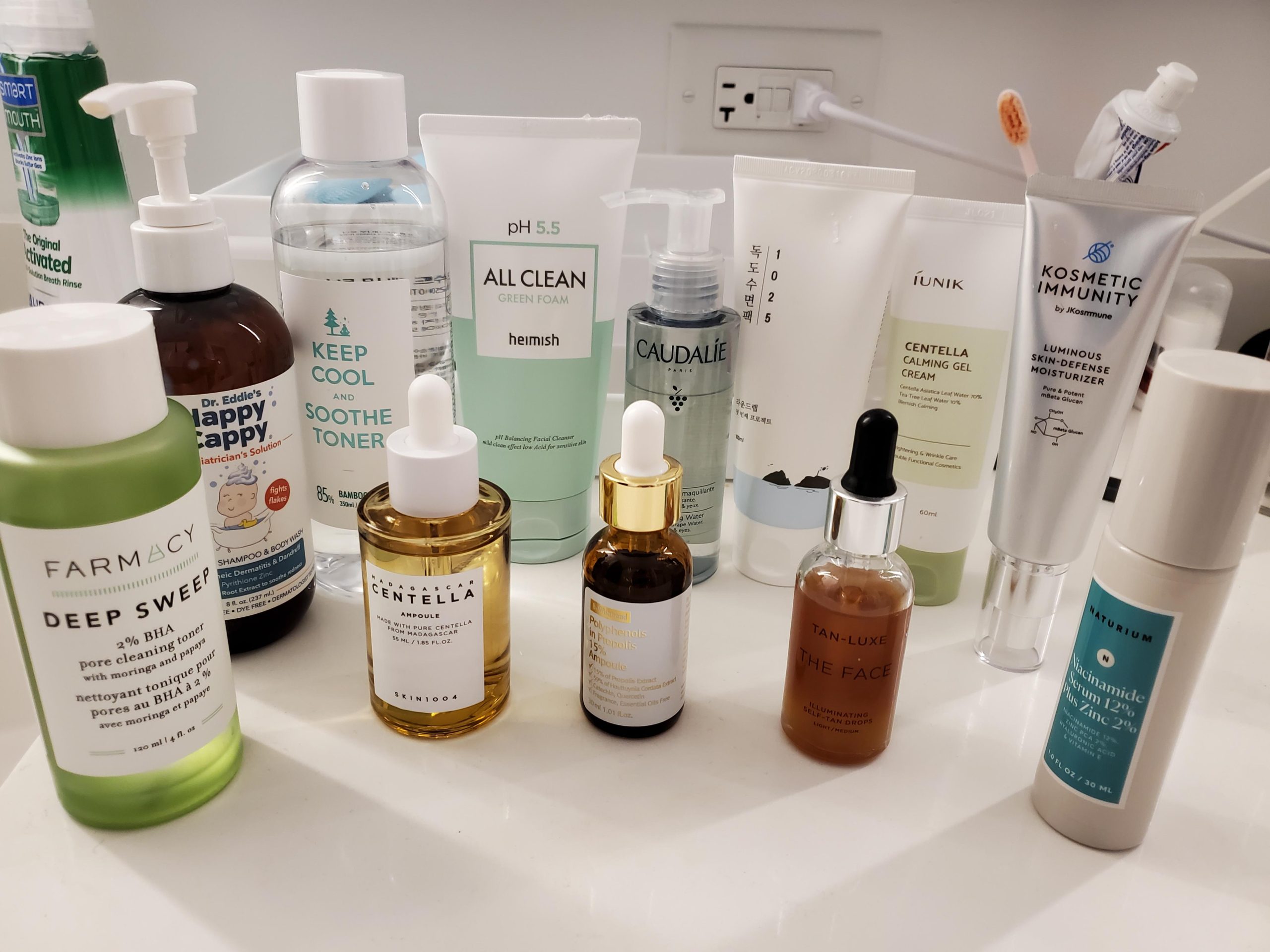
Image source: Reddit
Antifungal solutions, such as sprays or lotions, are applied directly to the affected skin or nails. These solutions penetrate deeper layers of the skin or nail bed to target the fungal infection at its source. Topical solutions are particularly effective for treating fungal infections of the feet, nails, or scalp.
34. Use an antifungal shampoo
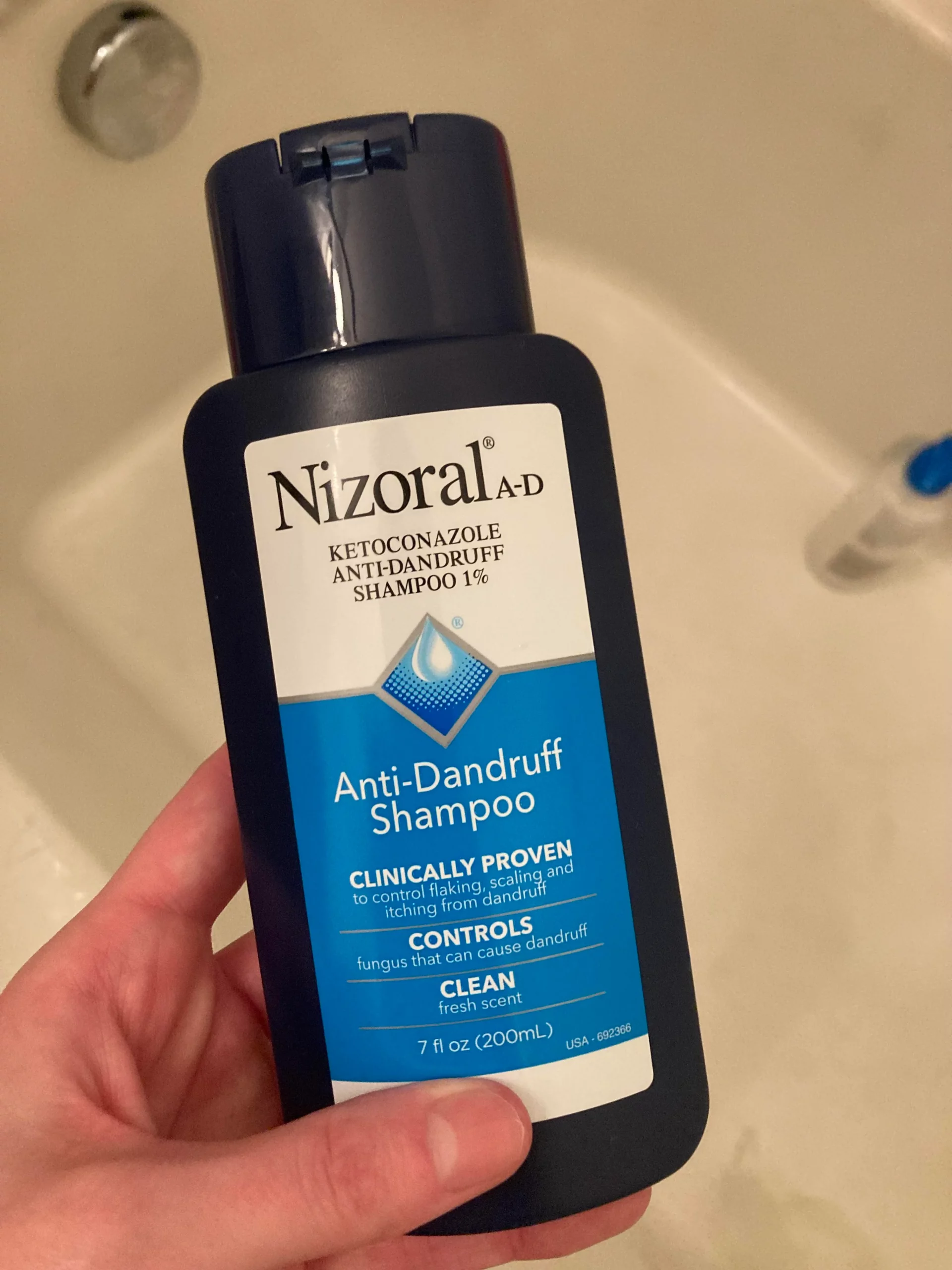
Image source: Reddit
Medicated shampoos containing antifungal agents are used to treat fungal infections of the scalp and hair follicles. These shampoos are lathered into the hair and scalp, allowing the active ingredients to penetrate and eliminate fungal overgrowth. Antifungal shampoos are typically used as part of a comprehensive treatment regimen for conditions like dandruff or tinea capitis.
35. Antifungal powders

Image source: The Guardian
Antifungal powders are used to keep areas prone to fungal infections dry and free from moisture. These powders contain active ingredients, such as miconazole or clotrimazole, that inhibit the growth of fungi and prevent recurrence of infections. Antifungal powders are commonly used for conditions like athlete's foot or diaper rash.
36. Use oral medications

Image source: Imperial College
Oral antifungal medications are taken by mouth and work systemically to treat fungal infections throughout the body. These medications are often prescribed for severe or systemic fungal infections that cannot be adequately treated with topical agents alone.
37. Try nail lacquers
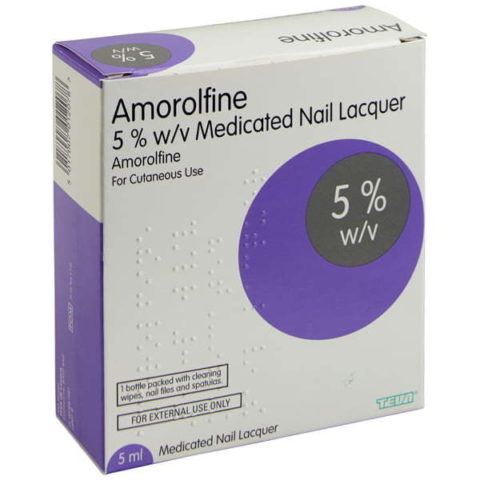
Image source: Reddit
Prescription-strength antifungal nail lacquers are applied directly to the affected nails to treat fungal infections of the toenails or fingernails. These lacquers form a protective barrier over the nails, allowing the active ingredients to penetrate and eradicate fungal organisms.
38. Implement lifestyle modifications

Image source: Reddit
Lifestyle modifications, such as keeping affected areas clean and dry, wearing breathable clothing, and avoiding sharing personal items, can help prevent the spread of fungal infections and promote healing. These simple measures can complement medical treatment and reduce the risk of recurrence.
39. Always practice proper hygiene habits

Image source: Reddit
Practicing good hygiene is essential for preventing fungal infections and maintaining overall skin health. This includes regular handwashing, keeping nails trimmed and clean, and showering after activities that cause sweating or exposure to moisture.
40. Avoiding irritants

Image source: Reddit
Avoiding potential irritants, such as harsh soaps, perfumes, or chemicals, can help prevent exacerbation of fungal infections and promote healing. Choosing gentle, non-irritating skincare products can help maintain the skin's natural barrier and reduce inflammation.
41. Maintaining a healthy diet
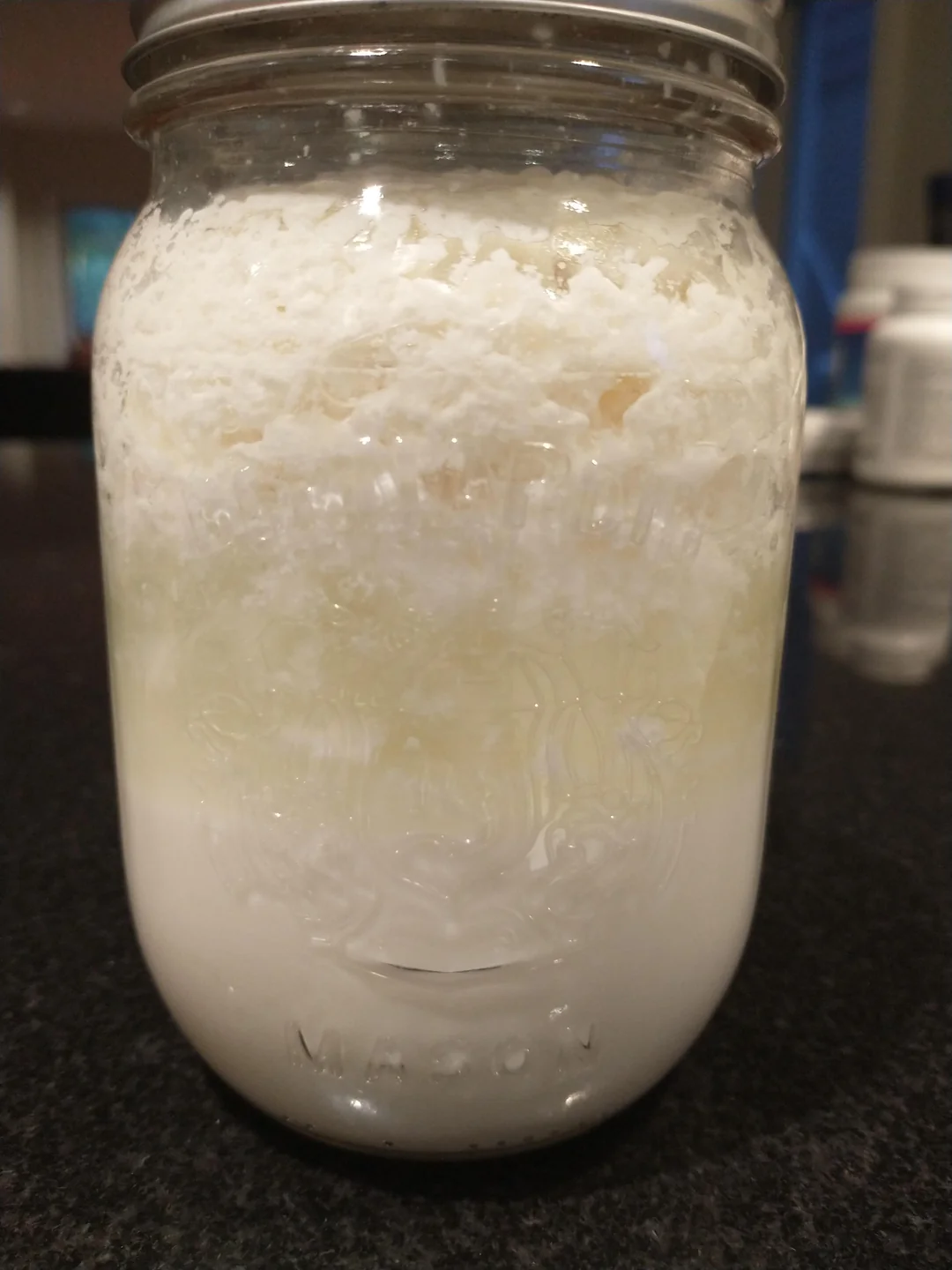
Image source: Reddit
Consuming a balanced diet rich in vitamins, minerals, and antioxidants can help support immune function and promote healing from fungal infections. Foods high in probiotics, such as yogurt and kefir, can also help restore healthy gut flora and reduce the risk of yeast infections.
42. Managing underlying conditions
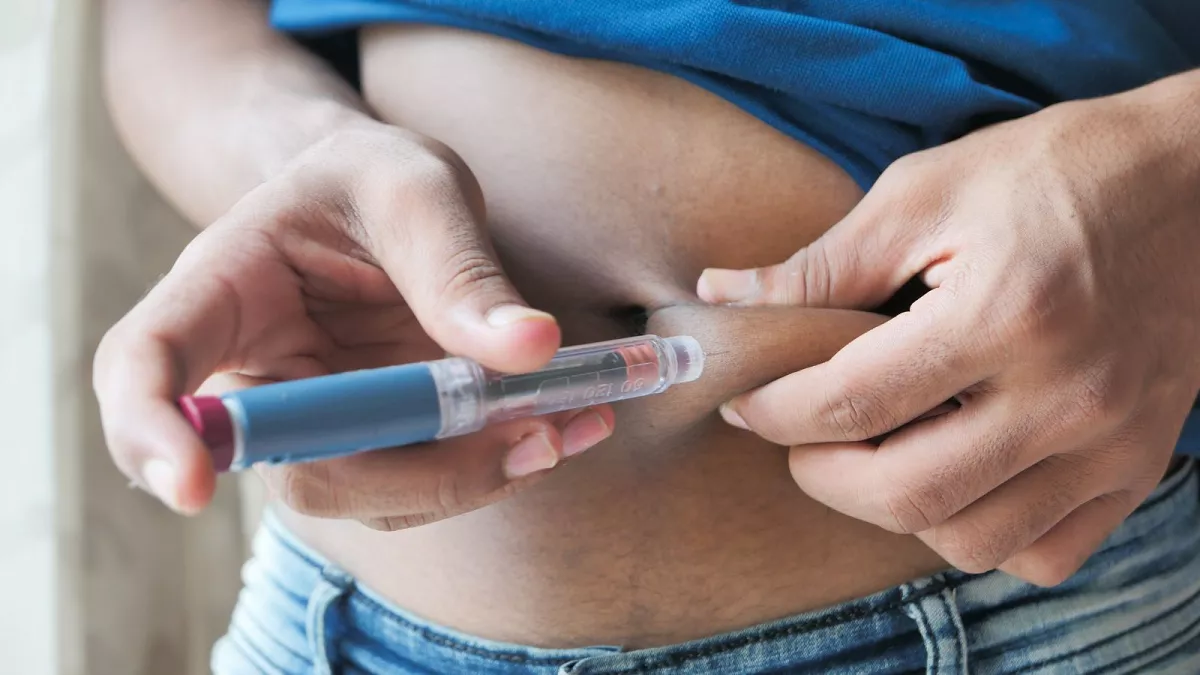
Image source: Euronews.com
Treating underlying health conditions, such as diabetes, compromised immune function, or hormonal imbalances, is important for reducing the risk of fungal infections and improving treatment outcomes. Effective management of underlying conditions can help address predisposing factors and prevent recurrence of fungal infections.
43. Keep affected areas dry

Image source: Reddit
Keeping affected areas dry and avoiding prolonged exposure to moisture can help create an inhospitable environment for fungal growth. This may involve wearing moisture-wicking clothing, using absorbent powders, and ensuring proper ventilation in enclosed spaces.
44. Always using clean towels and linens
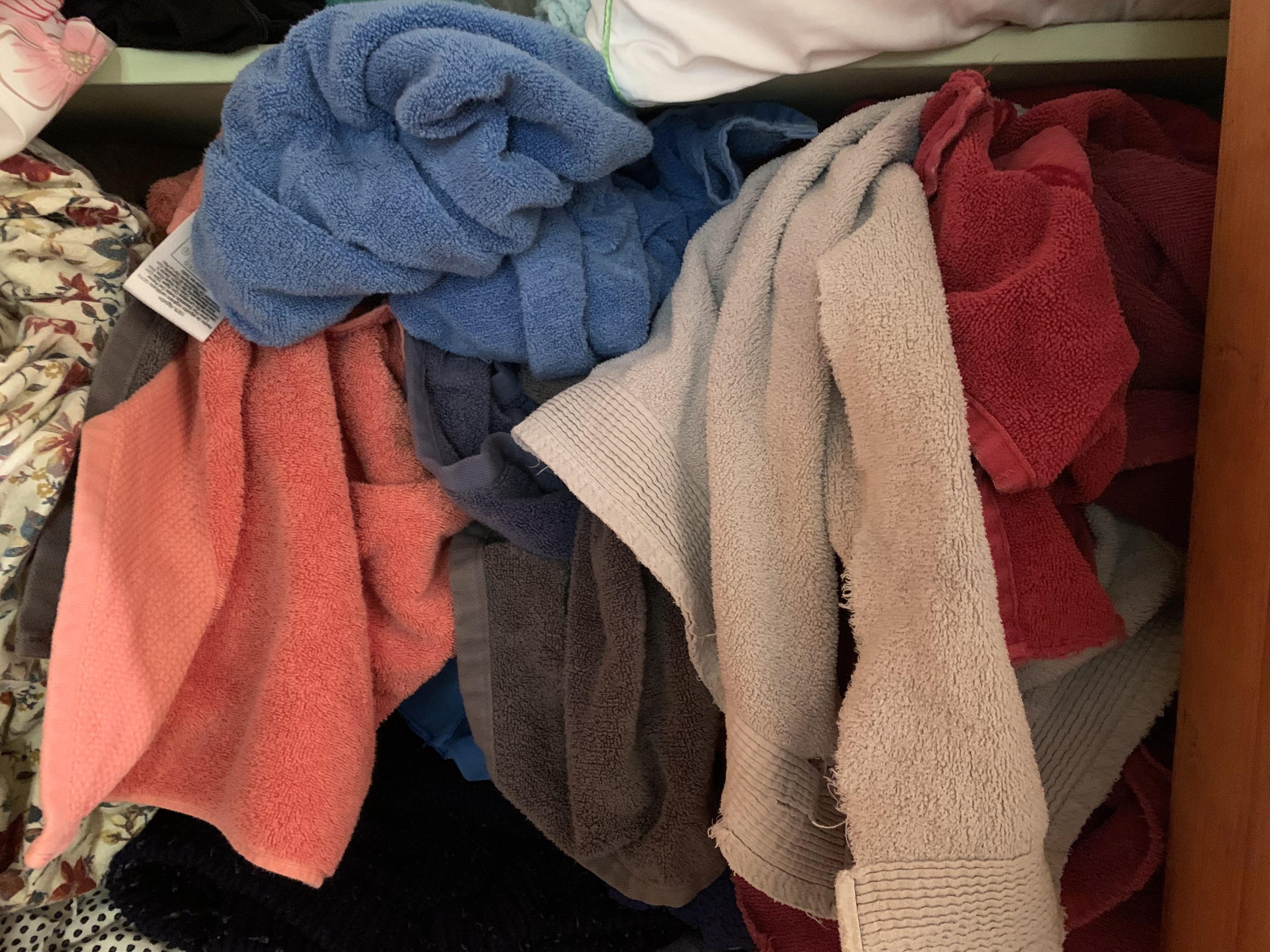
Image source: Reddit
Using clean towels, linens, and clothing can help prevent the spread of fungal infections and reduce the risk of reinfection. It's important to wash these items regularly in hot water and dry them thoroughly to eliminate fungal spores. It is time consuming but worth it.
45. Speak to a medical professional

Image source: Quora
Consulting a healthcare professional for proper diagnosis and treatment of fungal infections is essential, especially for severe or persistent cases that do not respond to over-the-counter remedies. A healthcare provider can recommend appropriate treatment options based on the specific type and severity of the fungal infection.
46. Complete full course of treatment

Image source: IndiaMART
It's important to complete the full course of antifungal treatment, even if symptoms improve before the medication is finished, to ensure eradication of the infection and prevent recurrence. Stopping treatment prematurely can lead to incomplete eradication of fungal organisms and increase the risk of treatment failure or recurrence.
47. Avoid tight fitting footwear
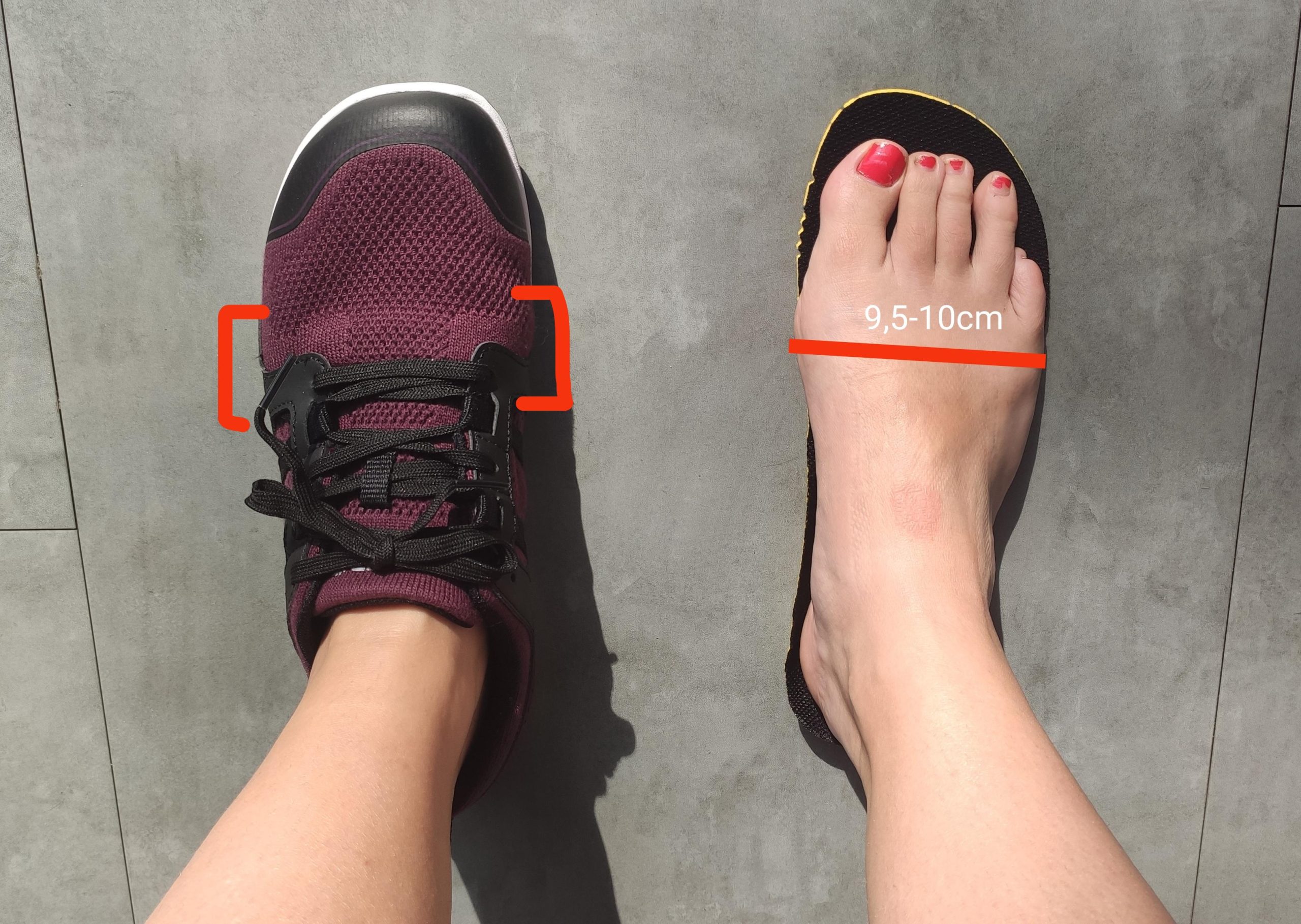
Image source: Reddit
Wearing well-fitting, breathable shoes can help prevent fungal infections of the feet, such as athlete's foot. Avoiding tight-fitting shoes and moisture-trapping socks can help keep feet dry and reduce the risk of fungal growth. Also, rotate different pairs of shoes, not wearing the same pair every day.
48. Use barrier methods
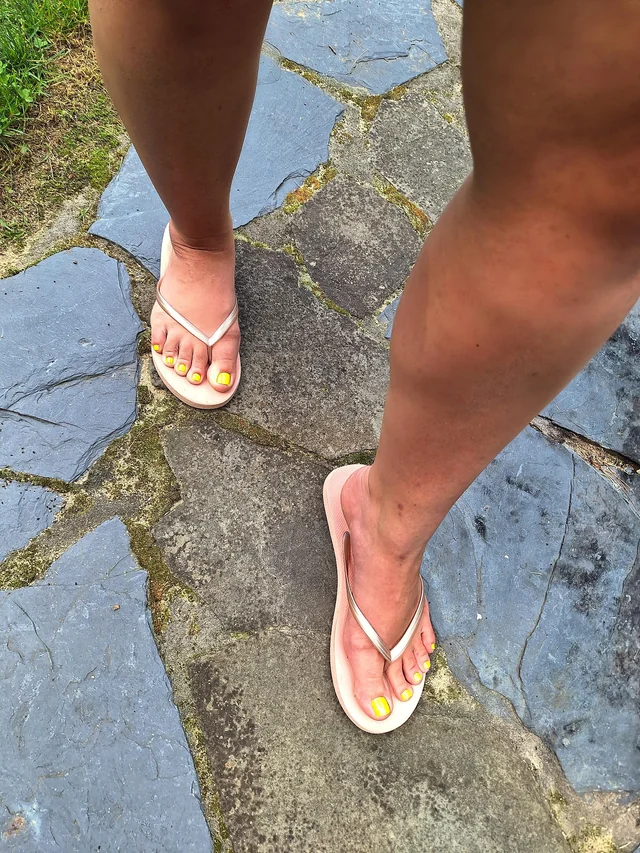
Image source: Reddit
Using barrier methods, such as gloves or footwear, in communal areas like gyms, locker rooms, and swimming pools, can help reduce the risk of fungal transmission. These precautions can help prevent exposure to fungal spores and reduce the likelihood of infection.
49. Disinfect household items
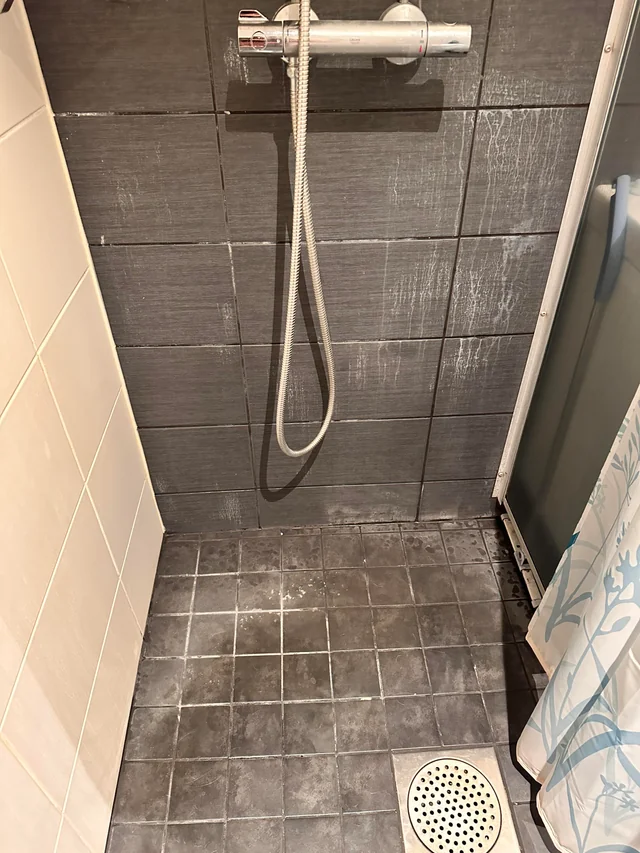
Image source: Reddit
Cleaning and disinfecting household items, such as towels, shoes, and shower surfaces, can help prevent the spread of fungal infections within the household. Regular cleaning with antifungal agents can help eliminate fungal spores and reduce the risk of transmission among family members.
50. Maintain good overall health
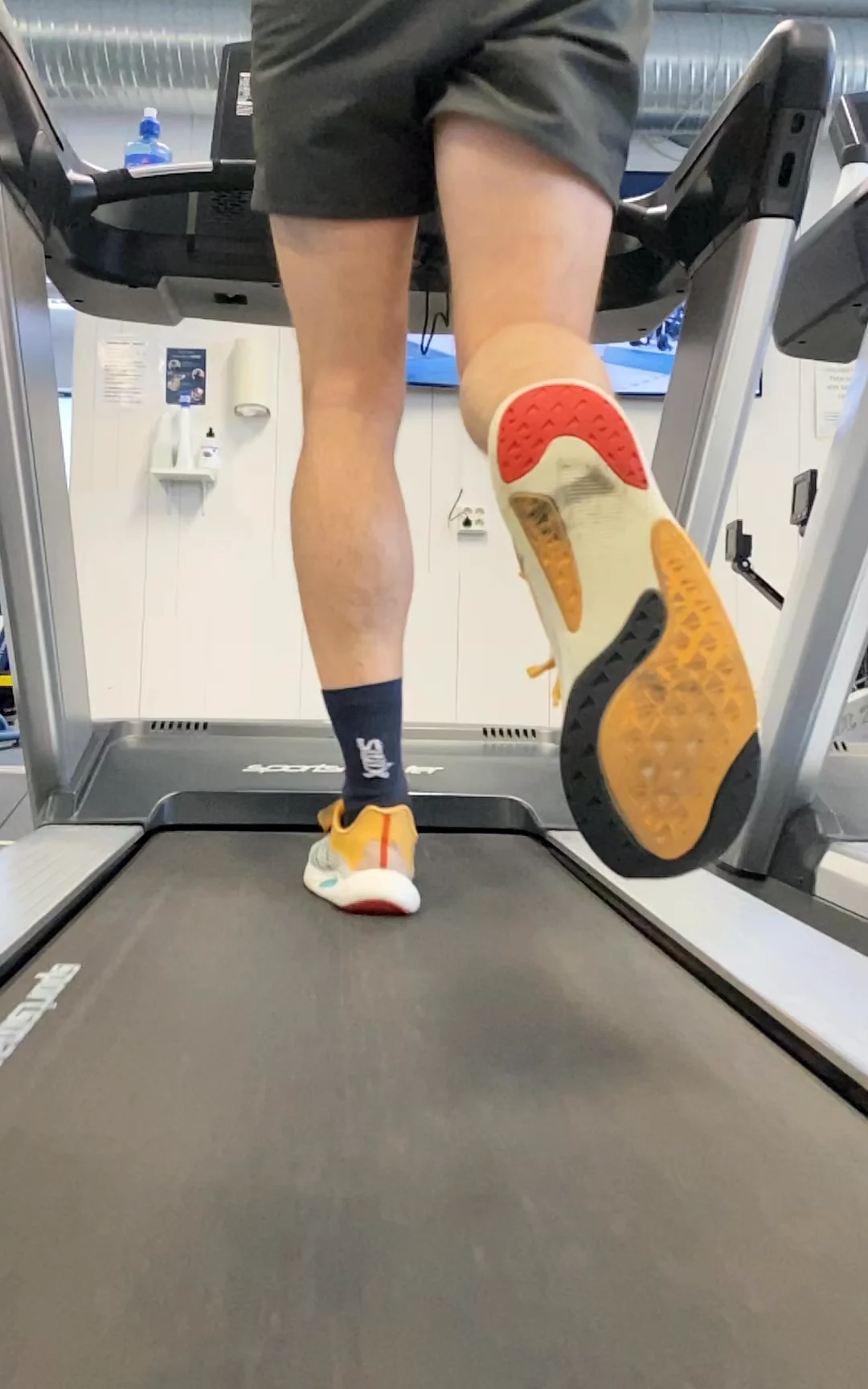
Image source: Reddit
Prioritizing overall health and well-being through regular exercise, stress management, adequate sleep, and proper hydration can help support immune function and reduce susceptibility to fungal infections. Healthy lifestyle habits can strengthen the body's natural defenses and promote faster recovery from fungal infections.


 I
I













































